Discover Catholic Daily Reflections
Catholic Daily Reflections

Catholic Daily Reflections
Author: My Catholic Life!
Subscribed: 1,047Played: 86,188Subscribe
Share
© Copyright My Catholic Life! Inc.
Description
My Catholic Life! presents the beauty and splendor of our Catholic faith in a down to earth and practical way. These daily audio reflections come from the "Catholic Daily Reflections Series" which is available in online format from our website. They are also available in e eBook or paperback format.
May these reflections assist you on your journey of personal conversion!
May these reflections assist you on your journey of personal conversion!
2121 Episodes
Reverse
Jesus appeared to the Eleven and said to them: “Go into the whole world and proclaim the Gospel to every creature. Whoever believes and is baptized will be saved; whoever does not believe will be condemned.” Mark 16:15–16Saint Mark, whom we honor today, certainly fulfilled this mission that was given to the Apostles. Though Mark was not one of the Twelve and might not have even known Jesus while He walked the earth, he certainly fulfilled the mission of proclaiming the Gospel to the whole world by writing his Gospel account.Mark’s Gospel is the shortest of the Gospels, but it is packed with detail. It recounts the life of Jesus vividly and in an almost breathless way. His Gospel presents the central messages of fulfillment found in Christ, the nearness of His Kingdom and the need to repent and believe.Though not much is known about Mark, our first reading from the Letter of Saint Peter written to the Christian communities in Asia Minor reveals that Mark was a follower of Peter who refers to Mark with affection as his “son.” It is also likely that Mark was a co-worker of Saint Paul (Philemon 1:24).As we honor this great evangelist, the most notable testament to His work of evangelizing is the Gospel attributed to him. Though he most certainly made a difference in the lives of those with whom he worked, preached to in person and witnessed to by his charity, it’s amazing to ponder the ongoing effect that his Gospel has had upon the world. As you think about his life, try to imagine him sitting and writing out the Gospel account we now have. As he did so, he could never have imagined that the words he wrote would be read by countless millions until the end of the age. For him, he was fulfilling but one small service to the people of his time. He was motivated by a desire to make Jesus known to them, and the best way he knew how to do this was to write down Jesus’ story.As Mark wrote his Gospel, we can be certain that he did so not only out of his own desire to share the life of Christ with others, but primarily because he was inspired by the Holy Spirit. Mark’s gift of the writing of the Gospel was a response to grace. God gave him this mission, and he listened and obeyed. As a result, his short telling of the life of Christ has become part of the most widely read story in all of human history. And not only that, it is also among the most transformative stories ever written.Though God will not call you to write a Gospel account, He is calling you to a particular mission. What is that mission? Sometimes we can easily think that what we do is insignificant. But if what we do in life is done through the inspiration of the Holy Spirit, then we can be certain that God will use our small effort in great ways. Like Saint Mark, we might never see how God uses us until we enter the glories of Heaven. But make no mistake, if you, like Saint Mark, listen to the will of God and act in obedience to Him, then the little you offer will have eternal and transformative consequences for the good of others.Reflect, today, upon this simple and humble servant of God. Consider Mark’s limited knowledge about the extent that his contribution would end up making for the entire world. As you reflect upon him writing his Gospel account, ponder your own calling from God to do your small part. Know that you, too, can become an instrument of the gift of salvation for many. The key is to seek out the will of God for your life and commit yourself to the fulfillment of that will with passion and drive. Do not be deterred by any apparent lack of immediate results. Stay faithful to your mission and, from Heaven, you will eternally rejoice as you see the unexpected ways that God used you. Glorious Lord Jesus, You gave Your followers the great mission to preach Your Gospel to the ends of the world. I thank You for the ways that Saint Mark responded to Your inspiration and was used in such a powerful way. Please use me, dear Lord, as an instrument of Your grace so that I can share in the mission You have given to the Church. Jesus, I trust in You.Source of content: catholic-daily-reflections.comCopyright © 2024 My Catholic Life! Inc. All rights reserved. Used with permission via RSS feed.Featured images above: Bible drawings by Otto Semler and others, many based on the engravings by Carolsfeld, via flickr
Jesus cried out and said, “Whoever believes in me believes not only in me but also in the one who sent me, and whoever sees me sees the one who sent me.” John 12:44–45Note that Jesus’ words in the above quoted passage start by stating that “Jesus cried out…” This intentional addition by the Gospel writer adds emphasis to this statement. Jesus didn’t just “say” these words, He “cried out.” For that reason, we should be extra attentive to these words and allow them to speak to us all the more.This Gospel passage takes place during the week prior to Jesus’ Passion. He entered Jerusalem triumphantly and, then, throughout the week, spoke to various groups of people while the Pharisees plotted against Him. The emotions were tense, and Jesus spoke with greater and greater vigor and clarity. He spoke about His pending death, the unbelief of many, and His oneness with the Father in Heaven. At one point during the week, as Jesus was speaking of His oneness with the Father, the voice of the Father spoke audibly for all to hear. Jesus had just said, “Father, glorify your name.” And then the Father spoke, saying, “I have glorified it and will glorify it again.” Some thought it was thunder and others thought it was an angel. But it was the Father in Heaven.This context is useful when reflecting upon today’s Gospel. Jesus passionately wants us to know that if we have faith in Him, then we also have faith in the Father, because the Father and He are one. Of course, this teaching on the oneness of God is nothing new to us today—we should all be very familiar with the teaching on the Most Holy Trinity. But in many ways, this teaching on the unity of the Father, Son and Holy Spirit must be seen as new and pondered anew every day.Imagine Jesus speaking to you, personally, and with great vigor, about His unity with the Father. Consider carefully how deeply He desires that you understand this divine mystery of Their oneness. Allow yourself to sense how much Jesus wants you to understand Who He is in relation to His Father.Prayerfully understanding the Trinity teaches us much, not only about Who God is but about who we are. We are called to share in the oneness of God by becoming united with Them through love. The early Church Fathers often spoke of our calling to be “divinized,” that is, to share in the divine life of God. And though this is a mystery beyond complete comprehension, it’s a mystery that Jesus deeply desires us to prayerfully ponder. Reflect, today, upon the passion in the heart of Jesus to reveal to you Who He is in relation to the Father. Be open to a deeper understanding of this divine truth. And as you open yourself to this revelation, allow God to also reveal to you His desire to draw you into Their holy life of unity. This is your calling. This is the reason Jesus came to earth. He came to draw us into the very life of God. Believe it with much passion and conviction. My passionate Lord, You spoke long ago about Your oneness with the Father in Heaven. You speak again, today, to me, about this glorious truth. Draw me in, dear Lord, not only to the great mystery of Your oneness with the Father but also to the mystery of Your calling to me to share in Your life. I accept this invitation and pray that I become more fully one with You, the Father and the Holy Spirit. Most Holy Trinity, I trust in You.Source of content: catholic-daily-reflections.comCopyright © 2024 My Catholic Life! Inc. All rights reserved. Used with permission via RSS feed.Featured image above: Jesus teaches in the Temple By Jan van Orley, via Wikimedia Commons
Jesus walked about in the temple area on the Portico of Solomon. So the Jews gathered around him and said to him, “How long are you going to keep us in suspense? If you are the Christ, tell us plainly.” Jesus answered them, “I told you and you do not believe.” John 10:24–25Why is it that these people did not know that Jesus was the Christ? They wanted Jesus to speak “plainly” to them, but Jesus surprises them by saying that He already answered their question but they “do not believe.” This Gospel passage continues the beautiful teaching about Jesus being the Good Shepherd. It’s interesting that these people want Jesus to speak plainly about whether or not He is the Christ, but instead, Jesus speaks plainly about the fact that they do not believe in Him because they are not listening. They have missed what He has said and are left in confusion.One thing this tells us is that God speaks to us in His own way, not necessarily in the way we would like Him to speak. He speaks a mystical, profound, gentle and hidden language. He reveals His deepest mysteries only to those who have come to learn His language. But to those who do not understand God’s language, confusion sets in.If you ever find yourself confused in life, or confused about the plan God has for you, then perhaps it’s time to examine how carefully you listen to the way God speaks. We could beg God, day and night, to “speak plainly” to us, but He will only speak in the way He has always spoken. And what is that language? On the deepest level, it’s the language of infused prayer.Prayer, of course, is different than only saying prayers. Prayer is ultimately a relationship of love with God. It’s a communication on the deepest level. Prayer is an act of God within our soul by which God invites us to believe in Him, to follow Him, and to love Him. This invitation is continually offered to us, but too often we fail to hear it because we fail to truly pray.Much of John’s Gospel, including Chapter Ten from which we are reading today, speaks in a mystical way. It’s not possible to simply read it like a novel and comprehend all that Jesus says with one read. Jesus’ teaching must be heard in your soul, prayerfully, pondered, and heard. This approach will open the ears of your heart to the certitude of the voice of God.Reflect, today, upon the mysterious ways in which God communicates to you. If you do not understand how He speaks, then that is a good starting point. Spend time with this Gospel, prayerfully pondering it. Meditate upon Jesus’ words, listening for His voice. Learn His language through silent prayer and allow His holy words to draw you to Himself.My mysterious and hidden Lord, You speak to me day and night and continually reveal Your love to me. Help me to learn to listen to You so that I may grow deep in faith and may truly become Your follower in every way. Jesus, I trust in You. Source of content: catholic-daily-reflections.comCopyright © 2024 My Catholic Life! Inc. All rights reserved. Used with permission via RSS feed.Featured images above: Jesus Walks in the Portico of Solomon By James Tissot, via Wikimedia Commons
“But whoever enters through the gate is the shepherd of the sheep. The gatekeeper opens it for him, and the sheep hear his voice, as the shepherd calls his own sheep by name and leads them out. When he has driven out all his own, he walks ahead of them, and the sheep follow him, because they recognize his voice.” John 10:2–4Do you recognize the voice of the Shepherd? Does He lead you each and every day, guiding you into His holy will? How attentive are you to what He speaks each day? These are some of the most important questions to ponder.Recognizing God’s voice is something that many people struggle with. There are often many competing “voices” that speak to us each and every day. From the latest news in the headlines, to the opinions of friends and family, to the temptations all around us within the secular world, to our own self-drawn opinions, these “voices” or “ideas” that fill our minds can be hard to sort through. What is from God? And what is from other sources?Recognizing the voice of God is indeed possible. First of all, there are many general truths that God has already spoken to us. For example, everything contained in the Holy Scriptures is the voice of God. His Word is alive. And when we read the Scriptures, we become more and more familiar with God’s voice.God also speaks to us through gentle inspirations that result in His peace. For example, when considering a certain decision you may need to make, if you present that decision to our Lord prayerfully and then remain open to whatever He wants of you, oftentimes His answer comes in the form of a deep and certain peace of heart.Learning to recognize the voice of God in your daily life is accomplished by building an interior habit of listening, recognizing, responding, listening some more, recognizing and responding, etc. The more you hear the voice of God, the more you will recognize His voice in the most subtle of ways, and the more you come to hear the subtleties of His voice, the more you will be able to follow. In the end, this is only accomplished by an ongoing habit of deep and sustaining prayer. Without that, it will be very difficult to recognize the voice of the Shepherd when you need Him the most.Reflect, today, upon how attentive you are to God in prayer. What does your daily prayer look like? Do you spend time each day listening to the gentle and beautiful voice of our Lord? Do you seek to form a habit by which His voice becomes clearer and clearer? If not, if you do struggle in recognizing His voice, then make the decision to establish a deeper habit of daily prayer so that it is the voice of our loving Lord Who leads you every day.Jesus, my Good Shepherd, You speak to me each and every day. You are constantly revealing to me Your most holy will for my life. Help me to always recognize Your gentle voice so that I can be led by You through the challenges of life. May my life of prayer become so deep and sustaining that Your voice always echoes within my heart and soul. Jesus, I trust in You.Source of content: catholic-daily-reflections.comCopyright © 2024 My Catholic Life! Inc. All rights reserved. Used with permission via RSS feed.Featured images above: Jesus, the Good Shepherd window at St. Matthew’s Lutheran Church, Charleston, South Carolina, via Wikimedia Commons
Jesus said: “I am the good shepherd. A good shepherd lays down his life for the sheep. A hired man, who is not a shepherd and whose sheep are not his own, sees a wolf coming and leaves the sheep and runs away, and the wolf catches and scatters them. This is because he works for pay and has no concern for the sheep.” John 10:11–13Today, on the Fourth Sunday of Easter, we celebrate Good Shepherd Sunday. It is a day when we reflect upon the tender image of Jesus as the Shepherd of us all. It is also a day set aside to pray for more shepherds within our Church who will shepherd God’s flock with the Heart of Christ.Our Gospel passage comes from John 10 which, in part, is a commentary on the previous chapter that includes the long and detailed story of the healing of the blind man. Recall that Jesus healed this man who was blind from birth. He did this healing “so that the works of God might be made visible through him.” As a result of this man's healing, the Pharisees cast the blind man out of the synagogue, not believing that Jesus’ healing was from God. After the man was cast out of the synagogue, Jesus spoke with him again and he professed his deep faith in Jesus, the true Shepherd. The healed blind man said, “I do believe, Lord.” Then he worshiped Jesus. Thus, the greater healing of this man was that he became a member of God’s flock, accepting Jesus as his true Shepherd.Our Gospel today is Jesus’ commentary upon the actions of the Pharisees in contrast to His own. The Pharisees, as religious leaders, were not shepherds. They were “thieves and robbers” who came to “steal and slaughter and destroy.” Jesus, however, came so that those who listened to His voice “might have life and have it more abundantly.”The Gospel passage quoted above explains why the Pharisees were not true shepherds. It was because they “work for pay” and have “no concern for the sheep.” Think about that statement as it applies to the Pharisees and their treatment of this man who was blind from birth. First of all, the “pay” that these Pharisees worked for was their own self importance—a fleeting and worldly reward. They saw themselves as the true teachers and interpreters of the Law and saw anyone who did not follow them as a threat. The Pharisees clearly perceived Jesus as such a threat to them. For that reason, they took their envy out on this humble and simple blind man. They were not shepherds to him. They did not encourage him, support him, point him to God or act in any way as an instrument of God’s grace. Instead, they condemned this innocent and holy man out of their pride.Though God shepherds us today through His sacred pastors, we are all called to participate in this shepherding of the Good Shepherd in our own unique way. We are called to lead those within our families, at work, at school, within our neighborhoods, social circles and in every other societal context. But too often we imitate these Pharisees by allowing our own selfishness and desire for self importance to interfere with our ability to put others first and love them with the Shepherd's heart.Reflect, today, upon the calling you have received to lay down your life for others in imitation of the Good Shepherd. In order to imitate this love in the Heart of Christ, we must love without seeking love in return. Laying our lives down is an act of sacrificial love that enables us to look only at the needs of those around us. Pride and selfishness must disappear, and the good of the other must become our only goal. Reflect upon how well you do this, and pray that the Good Shepherd will use you to shepherd those in your life who need it the most.Divine Shepherd, You came to lay down Your life for us all so that we might have life and have it to the fullest. Like the blind man You cured, I profess my belief in You and worship You. Help me to receive and imitate Your love so that I will lay my life down for others, leading them to You, their holy Shepherd. Jesus, my Good Shepherd, I trust in You.Source of content: catholic-daily-reflections.comCopyright © 2024 My Catholic Life! Inc. All rights reserved. Used with permission via RSS feed.https://stock.adobe.com/images/vienna-fresco-of-jesus-as-good-shepherd/62871846?prev_url=detail
As a result of this, many of his disciples returned to their former way of life and no longer walked with him. Jesus then said to the Twelve, “Do you also want to leave?” John 6:66–67Today’s Gospel concludes the beautiful and profound sermon on the Bread of Life (see John 6:22–71). When you read this sermon from beginning to end, it is noticeable that Jesus moves from more general statements about the Bread of Life that are easier to accept to more specific statements that are challenging. He concludes His teaching just prior to today’s Gospel by saying very directly, “Whoever eats my flesh and drinks my blood remains in me and I in him.” After Jesus said this, many who had been listening to Him left Him and no longer followed Him.There are generally three common attitudes people have toward the Most Holy Eucharist. One attitude is that of profound faith. Another is that of indifference. And a third is what we find in today’s Gospel: disbelief. Those who walked away from Jesus in today’s Gospel did so because they said, “This saying is hard; who can accept it?” What a great statement and question to ponder.It is true, in a certain way, that the teaching of Jesus on the Most Holy Eucharist is a hard saying. “Hard,” however, is not bad. It’s hard in the sense that belief in the Eucharist is only possible through a faith that comes from a deep interior revelation from God. In the case of those who walked away from Jesus, they heard His teaching, but their hearts were closed to the gift of faith. They remained stuck on a purely intellectual level, and, thus, the idea of eating the Flesh and Blood of the Son of God was more than they could comprehend. So who could accept such a statement? Only those who listen to our Lord as He speaks to them interiorly. It is only that interior conviction that comes from God that can be proof of the truthfulness of the Holy Eucharist.Do you believe that when you consume that which appears to be only “bread and wine,” you are actually consuming Christ Himself? Do you understand this teaching of our Lord on the Bread of Life? It is a hard saying and a difficult teaching, which is why it must be taken very seriously. For those who do not flat out reject this teaching, there is also the temptation to be somewhat indifferent to the teaching. It can easily be misunderstood to be just symbolism in the way our Lord talks. But the symbolism is much more than just symbolism. It’s a profound, challenging, and life-changing teaching of how we share in the divine and eternal life our Lord wishes to bestow upon us. Reflect, today, upon how deeply you believe this hard saying of Jesus. The fact that it is a “hard” saying should make you seriously examine your own faith or lack thereof. What Jesus teaches is life-changing. It’s life-giving. And when clearly understood, you will be challenged to either believe with your whole heart or turn away in disbelief. Allow yourself to believe in the Most Holy Eucharist with your whole heart and you will find that you are believing one of the most profound Mysteries of Faith. My glorious Lord, Your teaching on the Most Holy Eucharist is beyond human comprehension. It is a mystery so deep that we will never fully understand this precious gift. Open my eyes, dear Lord, and speak to my mind so that I may listen to Your words and respond with the deepest faith. Jesus, I trust in You. Source of content: catholic-daily-reflections.comCopyright © 2024 My Catholic Life! Inc. All rights reserved. Used with permission via RSS feed.Featured image above: Ordaining of the Twelve Apostles By James Tissot, via Wikimedia Commons
“Amen, amen, I say to you, unless you eat the Flesh of the Son of Man and drink his Blood, you do not have life within you. Whoever eats my Flesh and drinks my Blood has eternal life, and I will raise him on the last day. For my Flesh is true food, and my Blood is true drink.” John 6:53–55On a philosophical level, it’s useful to consider various things that appear to be “competing forces.” Good appears to be the opposite of evil. Light the opposite of dark. Heat the opposite of cold. And life the opposite of death. But are they truly opposites in the sense of being competing forces? When considered carefully, it is clear that good and evil, light and dark, heat and cold, and life and death are not actually “competing forces;” rather, evil is simply the absence of good, darkness the absence of light, cold the absence of heat, and death the loss of life. And though this philosophical distinction may not seem that interesting to some, and confusing to others, it is a helpful truth to ponder in light of today’s Gospel.Today’s Gospel tells us that failure to “eat the Flesh of the Son of Man and drink his Blood” results in death. Death is the loss of life, and the Eucharist is the source of life. Jesus says that if you fail to eat His Flesh and drink His Blood, “you do not have life within you.”This bold teaching of Jesus should cause us to stop and examine our approach to the Most Holy Eucharist. Sometimes we can fall into the trap of thinking that going to Mass and receiving Communion is something we do as a “favor” to our Lord. But in truth, it’s God’s most profound favor to us, because the Eucharist is the gateway to eternal life. And without it, we have no life within us. Our spirits die because we lose the presence of God.Looking at the negative effect of not receiving the Most Holy Eucharist can be very useful. Sometimes we need to consider the consequences of our actions as a way of motivating us to greater fidelity. For that reason, considering the fact that failure to eat the Flesh of the Son of God results in death should be very motivating. It should fill us with a holy fear of the loss of the life-giving presence of God within us. This “holy fear” is a true gift from God and is, in fact, one of the Seven Gifts of the Holy Spirit. Reflect, today, upon your interior attitude toward the Most Holy Eucharist. Do you see your participation in the Holy Mass more as a favor you offer to our Lord? Or do you see it as it is: the life-giving source of eternal life? Reflect upon how important this precious gift truly is and recommit yourself to a faithful and devout participation in this most holy Gift.My Eucharistic Lord, Your Flesh and Blood are truly the source of eternal life for all who receive You in faith. I thank You, dear Lord, for this most precious Gift of the Most Holy Eucharist, and I pray that I will be filled with a deep hunger and thirst for You always. Jesus, I trust in You.Source of content: catholic-daily-reflections.comCopyright © 2024 My Catholic Life! Inc. All rights reserved. Used with permission via RSS feed.Featured images above: Fra Angelico (Guido di Pietro) 1400-1455. Florence. The Sermon on the Mount, via flickr
I am the living bread that came down from heaven; whoever eats this bread will live forever; and the bread that I will give is my Flesh for the life of the world.” John 6:51Jesus was starting to stir up the emotions of some within the crowd. They began to ridicule Him because He had said that He was the “bread that had come down from heaven.” Thus, many of those who had sought Jesus out in hopes of another miraculous free meal began to murmur among themselves and ridicule Him. As a result, Jesus began to speak even more clearly and shockingly. He then went even further and said that He is not only the “living bread that came down from heaven” but that those who want to “live forever” must also eat His “Flesh.”How would you have reacted to such a statement if you were among those within the crowd? Consider the fact that you would have recently seen, with your own eyes, the miracle of the multiplication of the loaves and fishes. Therefore, you would have realized that Jesus was someone special, to say the least. But how would you have reacted to this statement of Jesus, “and the bread that I will give is my Flesh for the life of the world,” if you had heard it spoken at that time? Most likely, your reaction would have been the same reaction that you have right now to the teaching of the Most Holy Eucharist.Many who heard Jesus speak this way may have thought it was a bit of an unusual thing to say. Some would have reacted strongly, while others would have reacted with indifference. But some would have had an entirely different reaction. Some would have heard Jesus speak these new and shocking words, would have realized that they did not fully understand what He meant, but would have believed deeply on account of the gift of faith. Somehow they would have known, in the depths of their consciences, that they did indeed need to eat the Flesh of Him Who came down from Heaven since He was indeed the Bread of Life.Believing in the Eucharist, in the fact that these tangible and visible gifts of the Sacred Host and the Precious Blood are, in fact, the Body and Blood, Soul and Divinity of the Eternal Son of God, can only happen through the interior and transforming gift of faith. How else can you believe such a teaching? How else could you believe that these words in today’s Gospel have come true? And that the reception of the Most Holy Eucharist is the pathway to eternal life? The gift of faith in the Most Holy Eucharist is the one and only way to understand, accept and deeply believe what our Lord has spoken in this Holy Gospel.Reflect, today, upon Jesus speaking these most holy words for the first time: “...the bread that I will give is my Flesh for the life of the world.” As you prayerfully reflect upon these words, ponder how deeply you believe them. How deep is your faith in the Most Holy Eucharist? The Eucharist is the fulfillment of this passage, and our divine Lord invites you to not only believe in His holy words but to allow this truth to transform you in ways beyond what you could ever imagine. My Eucharistic Lord, You are truly the Bread of Life, and all those who eat Your Flesh and drink Your Blood will inherit eternal life. I do believe this, dear Lord. I believe that the Most Holy Eucharist is You, Your Soul and Divinity, given to me so that I can share in Your holy life. Give me the grace I need to deepen my faith in the Most Holy Eucharist so that I will be drawn more fully into the joys of Your Eternal Kingdom. Jesus, I trust in You.Source of content: catholic-daily-reflections.comCopyright © 2024 My Catholic Life! Inc. All rights reserved. Used with permission via RSS feed.Featured images above: Christ Preaching (La Petite Tombe) By Rembrandt, via Wikimedia Commons
“For this is the will of my Father, that everyone who sees the Son and believes in him may have eternal life, and I shall raise him on the last day.” John 6:40Do you believe in Jesus? Unquestionably the answer is “Yes.” However, to believe in our Lord is something that must deepen with every passing day. Therefore, if you do have faith in Jesus, you can also admit that you do not have faith enough. In this Gospel passage in which the “Bread of Life Discourse” is continued, Jesus calls us to do two things. First, we must see Him. Second, we must believe. Let’s start with the first.When Jesus first spoke these words to the crowd, they did see His physical presence. But many of them did not see beyond the surface. They saw His miracles, heard His teaching, but very few saw the deeper reality of Jesus as the Son of the Eternal Father and the Savior of the World.If you are to believe in our Lord and all that He is, then you must first see Him. One of the best ways to foster this “holy sight” of our Lord is to gaze at Him in the Most Holy Eucharist. When you attend Mass or spend time in adoration and look upon the Most Holy Eucharist, what do you see? Do you see the Eternal Son? Do you see His holy divinity? Do you see your God and the Lord of all?As we stand or kneel before our Lord, present in the Most Holy Eucharist, it’s easy to become distracted. It’s easy to allow our minds to wander to the many other aspects of our daily lives and to fail to see the eternal Son of God as He is present to us.Reflect, today, upon the way you look at our Lord. If you want to deepen your faith, your belief, then start with your sight. Start by considering how you look at Jesus, present in the Most Holy Eucharist. If you are blessed to be with Him this day at the Holy Mass or in adoration, examine the way to see Him. Gaze at Him. Make an intentional act of faith in His divine presence. Acknowledge His Godhead, His glory, His holiness and His sacred presence. If you can look beyond the surface and lift the veil that covers His glory, then this holy gift of sight will give way, also, to the gift of profound faith. My ever-present Lord, I thank You profoundly for the way You come to me in the Most Holy Eucharist. I thank You for Your divine presence and glory. Help me to see beyond the veil of the appearance of bread and wine so that I can see more clearly Your divinity. As I see Your divine presence, dear Lord, help me to profess my belief in You with greater certitude and faith. Jesus, I trust in You. Source of content: catholic-daily-reflections.comCopyright © 2024 My Catholic Life! Inc. All rights reserved. Used with permission via RSS feed.
So they said to Jesus, “Sir, give us this bread always.” Jesus said to them, “I am the bread of life; whoever comes to me will never hunger, and whoever believes in me will never thirst.” John 6:34–35Imagine if you were to never grow hungry or never thirst again. On a natural level, this would be an interesting reality. Of course, if you never had physical hunger or thirst, then you may never enjoy the delight of good food and drink. So why would anyone want to lose out on such delights?Of course, Jesus was not speaking of natural food and drink, He was speaking of supernatural hunger and thirst. And He was not saying that the spiritual food and drink He came to give us would eliminate our ability to delight in spiritual fulfillment. On the contrary, Jesus was saying that the spiritual food and drink He was to provide would result in never-ending fulfillment and satisfaction.Chapter 6 of John’s Gospel will continue to be read throughout this week, the Third Week of Easter. This chapter presents us with what is traditionally called the “Bread of Life Discourse.” It’s John’s deep, mystical and profound teaching on the Most Holy Eucharist.First of all, it’s useful to look at this Gospel within its context. Recall that on the previous day, Jesus performed the miracle of the multiplication of the loaves and fishes, and a crowd of people who had been fed by Him were now seeking more food. Jesus uses their desire for more food to begin to teach them about the Most Holy Eucharist, and He wants to do the same for you.Put yourself into this scene. What is it that you hunger and thirst for the most? Perhaps you have plenty of physical food, but perhaps you don’t. If you do, what else do you crave? What do you desire? When you have identified your deepest desires right now, use these desires to allow our Lord to teach you about the Bread of Life. It might be useful to say to our Lord, “Here are my current desires in life…” And then, allow yourself to hear Jesus say to you, “I want to give you so much more. I am what you truly long for. If you come to Me, you will have all your desires fulfilled and more.” This is essentially the conversation Jesus had with this crowd throughout John Chapter 6.Do you believe that the Most Holy Eucharist is capable of fulfilling you on the deepest level? Too often we approach that Sacrament in a lazy and distracted way. As a result, we often fail to truly receive our Lord on a level that provides this deepest delight and satisfaction.Reflect, today and throughout this week, upon your approach to Holy Communion. The Eucharist is Christ Himself. It’s a gift that has the potential to not only sustain us in every way but also to draw us into the greatest Heavenly delights. Believe Jesus’ words in this holy chapter of John’s Gospel. For if you deepen your belief in all that Jesus has said, you will begin to realize that all you crave in life will begin to be fulfilled by this precious gift in ways beyond your imagination. My Eucharistic Lord, You are the Bread of Life. You are all that I desire in life. Give me the grace of understanding, dear Lord, so that I can come to believe all that You have revealed about the Most Holy Eucharist. I do believe, my God. Help my unbelief. Jesus, I trust in You.Source of content: catholic-daily-reflections.comCopyright © 2024 My Catholic Life! Inc. All rights reserved. Used with permission via RSS feed.Image: Christ the Saviour By Juan de Juanes, via Wikimedia Commons
“Rabbi, when did you get here?” Jesus answered them and said, “Amen, amen, I say to you, you are looking for me not because you saw signs but because you ate the loaves and were filled. Do not work for food that perishes but for the food that endures for eternal life, which the Son of Man will give you.” John 6:25–27What do you work for in life? That which ultimately perishes? Or that which is eternal? This is an important question to sincerely answer. Too often we spend most of our lives putting most of our time and energy into those things that have little value for eternity.The day before the above quoted conversation, Jesus had multiplied the loaves and fishes and fed five thousand households. The people were so impressed that the next day, when they were hungry again, they came looking for Jesus and found Him on the other side of the lake. Jesus, of course, immediately understands the situation. He realizes that the crowd of people who found Him were more interested in another meal than they were in the spiritual food that is eternal. So Jesus gently uses the opportunity to give them this short lesson about what is most important. The “food that endures for eternal life” is ultimately faith in Jesus.Imagine if you were one of those people who witnessed, first hand, the miracle of the multiplication of the loaves and fishes. What sort of an impact would that have had on you? Would it have drawn you into a deep faith in Jesus, the Son of God? Or would you have been more impressed with the free and miraculous food? What’s interesting is that Jesus feeds the five thousand when they are not expecting it and not desiring it. But when they do come expecting it and desiring it the next day, He refuses. Jesus refuses another miracle because He wants the people to look deeper to the eternal reality. In our own lives, living primarily for the deeper and eternal reality is often hard to do. It’s easy to keep our eyes on the superficial and less important aspects of life. How do I make more money? Or buy a new car? Or have a fancier meal? How can I better entertain myself? What new piece of clothing should I buy? And the list goes on. Of course none of these things are evil, but they are all passing and will not have an effect upon our eternal soul. And, in fact, if we give too much attention to the superficial and least important aspects of life, they will have the effect of distracting us from that which is most important. Reflect, today, upon this challenge from Jesus. Do not work for that which perishes; work for that which is eternal. Look at your priorities in life. Where is your focus? What concerns you the most every day? Hopefully your greatest concern is to grow deeper in faith in the Son of God. Hopefully it is to live the charity that is eternal. If you honestly look at your life and the goals you have and see yourself overly concerned with the things of this world, then allow these words of our Lord to speak to you directly so that you are storing up riches for eternal life. My most glorious Lord, You are the Food that is eternal. You are the Food for everlasting life. Give me the wisdom I need, dear Lord, to turn my eyes from the passing and least important things of this world and to turn, instead, to that which is eternal. May I keep my eyes upon You and be nourished by my faith in You. Jesus, I trust in You. Source of content: catholic-daily-reflections.comCopyright © 2024 My Catholic Life! Inc. All rights reserved. Used with permission via RSS feed.Featured image above: Sermon on the Mount By Cosimo Rosselli, via Wikimedia Commons
“Why are you troubled? And why do questions arise in your hearts? Look at my hands and my feet, that it is I myself. Touch me and see, because a ghost does not have flesh and bones as you can see I have.” Luke 24:38–39Imagine if Jesus appeared to you. What if He showed you the wounds in His hands and feet and invited you to touch Him so as to believe. Would you believe? Most likely you would, to a certain extent. It would be the beginning of an experience that could be life-changing, just as it was for these disciples. Our Lord’s appearance to the disciples led to their transformation from men who were confused and doubtful to men who were filled with joy and zeal. Eventually, they would go forth preaching about Jesus as witnesses to His death and Resurrection with courage and with a desire that all who heard them would turn to Jesus as their Savior.In the first reading of today’s Mass, Saint Peter is recorded as doing this very thing. After healing a crippled man at the gate of the Temple, a crowd gathered in amazement and Peter preached to them about Jesus. He concluded His sermon by saying, “God has thus brought to fulfillment what he had announced beforehand through the mouth of all the prophets, that his Christ would suffer. Repent, therefore, and be converted, that your sins may be wiped away.”Today, we are entrusted with the same mission given to our Lord’s disciples, and we must preach with the same zeal, courage and conviction with which they preached. First, we must become as certain as they were about Jesus’ triumph over sin and death. We must turn from all sin and believe that the fullness of life is found only in Christ Jesus. But then we must commit ourselves to the proclamation of this faith with every fiber of our being.Begin by considering how deeply you believe in Jesus as the Savior of the World. Though it might be tempting to think that having Jesus appear to you in person would help deepen your faith in Him, the truth is that the first disciples were not primarily convinced because of the physical appearances of Jesus. Rather, this gift came primarily through the spiritual touching of their minds. After appearing to the disciples physically, we read that Jesus “opened their minds to understand the Scriptures.” This was what convinced them more than anything—the spiritual gift of understanding. And that gift is offered to you today, just as it was to the first followers of Jesus.Saint Thomas Aquinas explains that the spiritual gift of understanding is a gift that reveals to us the very essence of God. He explains that it is a much deeper form of knowledge than that which is obtained through our five senses. Thus, simply seeing something with our eyes, touching it or hearing it is not nearly as convincing as the knowledge obtained through the spiritual gift of understanding. The gift of understanding enables us to “read inwardly” and to penetrate the very essence of something. For that reason, the physical appearance of Jesus might have been the first step toward believing, but it wasn’t until these same disciples encountered our Lord within their souls, perceiving the very essence of His Resurrection inwardly, that they were forever changed. Only this form of knowledge could then convince them to go forth and proclaim the message of salvation. Reflect, today, upon your own knowledge of Jesus and the transforming power of His Resurrection in your life. Has God spoken to you within the depths of your soul? Have you perceived this inward knowledge and had your mind opened? Listen attentively to our Lord—not just with your ears but primarily with your spirit. It is there, within you, that you, like the first disciples, will come to know and believe in the life, death and resurrection of Christ so that you can then go forth empowered to proclaim these truths to others. My revealing Lord, You showed Yourself to Your disciples not only physically but spiritually, revealing Your very essence to them interiorly. Please bestow this gift upon me, dear Lord. May I come to know You and believe in You with all my heart. As I do, please use me as an instrument of Your mercy to others. Jesus, I trust in You.Source of content: catholic-daily-reflections.comCopyright © 2024 My Catholic Life! Inc. All rights reserved. Used with permission via RSS feed.Featured images above: Appearance of Jesus to the disciples, fresco in the basilica of Saint Andrew in Mantua, Italy, via Adobe
When they had rowed about three or four miles, they saw Jesus walking on the sea and coming near the boat, and they began to be afraid. But he said to them, “It is I. Do not be afraid.” John 6:19–20 On October 22, 1978, Pope Saint John Paul II was inaugurated as the 264th pope of our Holy Church. During his homily, the Holy Father said, “Brothers and sisters, do not be afraid to welcome Christ and accept his power.” The phrase “Do not be afraid” was repeated over and over again throughout his pontificate. In his book, Crossing the Threshold of Hope, which was written as a preparation for the new millenia, the Holy Father explained the following: “When pronouncing these words in St. Peter’s Square, I already knew that my first encyclical and my entire papacy would be tied to the truth of the Redemption. In the Redemption we find the most profound basis for the words “Be not afraid!”: “For God so loved the world that he gave his only Son” (cf. Jn 3:16). This exhortation against fear is repeated throughout the Bible numerous times. It is found in the Old Testament over a hundred times in some form and in the New Testament over fifty times. Again and again, God wants us to conquer fear, worry, and anxiety. He wants us to trust in Him in all things and place all of our hope in Him. What is it that you fear the most in life? For some, fear comes on a daily basis. Perhaps you face financial insecurity, poor health, a broken relationship, psychological difficulties, etc. There are numerous things in life that can easily tempt us to fear. In the Gospel passage for today, Jesus walks toward His disciples on the water during a turbulent time on the Sea of Galilee. The wind was blowing, and the waves were distressing. And though these fishermen had spent many nights on the sea, Jesus chose to come to them at this moment, not so much to help them get to shore but to teach all of us that no matter what “storm” we face in life, He will be there in ways that are truly miraculous. Certainly, none of the disciples ever expected to see Jesus walking on the water in the middle of the night while the waves were crashing upon their boat. But Jesus did this and spoke those words, “Do not be afraid,” because He wanted us to know that no matter what we struggle with in life, He is always there, coming to us in love, and will see us safely to the shore of His peace. If fear is something you struggle with on a personal level, then turn your eyes to the reality of the Redemption. The Father sent the Son into the world to save you. Jesus did not only come to teach, or to inspire, or to help. He came to save. To redeem. To destroy death, fear, sin and all that keeps us from the Father. His saving act changes humanity forever. If you understand that and believe it, then nothing can steal away your peace and fill you with fear. Reflect, today, upon this powerful little phrase: “Do not be afraid!” Imagine yourself in the boat with the disciples at night, being tossed by the waves, surrounded by darkness. And then see Jesus coming to you speaking those words. Know that He speaks them to you in the darkest moments of your life and that He will never leave you. Hope in Him and let His saving act of the Redemption transform your life forever. Jesus, my Redeemer, I thank You for coming into this world to save us. Thank You for the gift of the Redemption of the world. When I am tempted to fear and turn my eyes to the difficulties of the world, give me the grace I need to turn to You in hope and trust. Enter the storms of my life, dear Lord, and lift my burden of fear. Jesus, I trust in You. Source of content: catholic-daily-reflections.comCopyright © 2024 My Catholic Life! Inc. All rights reserved. Used with permission via RSS feed.Featured images above: Jesus walking on the Sea of Galilee By Paul Bril and Frederik van Valckenborch, via Wikimedia Commons
“Gather the fragments left over, so that nothing will be wasted.” So they collected them, and filled twelve wicker baskets with fragments from the five barley loaves that had been more than they could eat.” John 6:12–13John’s Gospel is filled with much symbolic meaning. The passage above concludes the story of the miracle of the multiplication of the loaves and fishes. After feeding the multitude of people with only five barley loaves and two fish, they were able to fill twelve wicker baskets with what remained. What was the reason for the extra?Saint Augustine, in commenting upon this passage, explains that Jesus provided more than the people could eat as a way of symbolically representing spiritual truths that were beyond what the vast crowds could comprehend. Thus, Jesus’ teachings spiritually nourished the crowds to the point that they were fully satisfied. But even though the general crowds were satisfied with what Jesus taught them, there was still so much more that He had to teach. These deeper spiritual truths are represented by the extra twelve baskets.The twelve baskets represent the Twelve Disciples. They were the ones specially chosen by Jesus to receive so much more. Recall the times when Jesus taught the crowds in parables and then, later, would explain the meaning to the Twelve in private. He revealed to them certain truths that most people could not understand and accept.It is helpful to consider three different groups of people in this miracle and apply those groupings to us today. The first group of people are those who were not even present for the miracle. Those who did not make the journey to be with Jesus in the wilderness. This is the largest group of people within society who go about their daily lives without even seeking minimal nourishment from our Lord.The second grouping of people is this “large crowd” who followed Jesus to the remote side of the Sea of Galilee to be with Him. These represent those who diligently seek out our Lord every day. These are those who are faithful to the celebration of the Mass, the reading of Scripture, to daily prayer and study. To this grouping of people, our Lord teaches many things, and they are nourished by His holy Word and Sacraments.The third grouping of people, the Twelve Disciples who are represented by the Twelve wicker baskets left over, are those who are exceptionally faithful to our Lord and continue to be nourished by Him in a superabundant way. These are those who seek to understand and embrace the deepest spiritual truths so as to be nourished and transformed on the deepest level. Reflect, today, upon the fact that the spiritual food our Lord wishes to offer you is most often far more than you can immediately accept and consume. But understanding that fact is the first step to disposing yourself to receive even more. As you reflect upon this superabundance of spiritual food from our Lord, recommit yourself especially to seek out that remaining “twelve wicker baskets” of spiritual truths. If you do, you will discover that there is truly no end to the transforming depths of the gifts of grace our Lord wishes to bestow upon you. My most generous Lord, You not only give spiritual nourishment to Your people, You give it in superabundance. As I daily seek You out and am filled with Your mercy, help me to never tire of feasting upon the superabundant gift of Your grace. Please do nourish me, dear Lord, and help me to consume Your holy Word. Jesus, I trust in You.Source of content: catholic-daily-reflections.comCopyright © 2024 My Catholic Life! Inc. All rights reserved. Used with permission via RSS feed.Featured image above: Multiplication of the loaves and fish By Ambrosius Francken I, via Wikimedia Commons
The Father loves the Son and has given everything over to him. John 3:35It’s interesting to note that the words of today’s Gospel appear to be from Saint John the Baptist, since they come within the context of his testimony to Jesus. Some commentators, however, suggest that they are words that were actually spoken by Jesus and that the Evangelist inserts them here as a continuation of the testimony of the Baptist, attributing them to Saint John. Regardless of who actually spoke these words, the line quoted above gives us much to reflect upon, in that it gives us insight into the very meaning and practice of true love.What is love? Is it a feeling? An emotion? A drive or a desire for something or someone? Of course, the secular understanding of love is much different than a divine understanding of love. Oftentimes the secular view of love is more self-centered. To “love” someone or something is to want to possess that person or object. “Love” from a secular view focuses upon the attraction and desire. But true love, from a divine perspective, is very different.The line quoted above tells us two things: First, we are told that “The Father loves the Son…” But then we are given a definition of that love. We are told that love in this case results in the Father giving “everything over” to the Son. When we consider the word “everything” in this passage, it is clear that this can only refer to the Father giving Himself to the Son in totality. Within the life of the Father, everything means His very essence, His being, His personhood, His whole divine self. The Father does not say, “I want;” rather, the Father says, “I give.” And the Son receives all that the Father is.Though this is deep and mystical language, it becomes very practical for our lives when we understand that divine love is not about wanting, taking, desiring, feeling, etc. Divine love is about giving. It’s about the giving of oneself to another. And it’s not just about giving some of yourself away, it’s about giving “everything” away.If the Father gave everything to the Son, does that mean that the Father has nothing left? Certainly not. The beautiful nature of divine love is that it is never ending. The more one gives themself away, the more they have. Thus, the gift of the life of the Father to the Son is infinite and eternal. The Father never ceases to give, and the Son never ceases to receive. And the more the Father gives Himself to the Son, the more the Father becomes the essence of love itself.The same is true in our lives. It’s easy to fall into the trap of thinking that love should only go so far. But if we are to strive to imitate and participate in the love the Father has for the Son, then we must also understand that love is about giving, not receiving, and that the giving must be a gift of everything, holding nothing back. We must give ourselves away to others without counting the cost and without exception. Reflect, today, upon your view of love. Look at it from a practical perspective as you think about the people whom you are especially called to love with a divine love. Do you understand your duty to give yourself to them completely? Do you realize that giving yourself away will not result in the loss of your life but in the fulfillment of it? Ponder the divine love that the Father has for the Son and make the radical and holy choice today to strive to imitate and participate in that same love. My loving Lord, the Father has given all to You, and You, in turn, have given all to the Father. The love You share is infinite and eternal, overflowing into the lives of all Your creatures. Draw me into that divine love, dear Lord, and help me to imitate and share in Your love by fully giving my life to others. Jesus, I trust in You.Source of content: catholic-daily-reflections.comCopyright © 2024 My Catholic Life! Inc. All rights reserved. Used with permission via RSS feed.Featured images above: Sancta Trinitas, via flickr
“God so loved the world that he gave his only-begotten Son, so that everyone who believes in him might not perish but might have eternal life.” John 3:16We continue, today, to read from the conversation that Jesus had with Nicodemus, the Pharisee who ultimately converted and is venerated as one of the early saints of the Church. Recall that Jesus challenged Nicodemus as a way of helping him to make the difficult decision to reject the malice of the other Pharisees and to become His follower. This passage quoted above comes from Nicodemus’ first conversation with Jesus and is often quoted by our evangelical brothers and sisters as a summary of the whole Gospel. And indeed it is.Throughout Chapter 3 of John’s Gospel, Jesus teaches about light and darkness, being born from above, wickedness, sin, condemnation, the Spirit and much more. But in many ways, all that Jesus taught in this chapter and throughout His public ministry can be summed up in this short and to-the-point statement: “God so loved the world that he gave his only-begotten Son, so that everyone who believes in him might not perish but might have eternal life.” This short teaching could be broken down into five essential truths.First, the Father’s love for humanity, and specifically, for you, is a love so deep that there is no way we will ever fully understand the depths of His love. Second, the love the Father has for us compelled Him to give us the greatest gift we could ever receive and the greatest gift the Father could give: His own divine Son. This gift must be prayerfully pondered if we are to come to a deepening understanding of the infinite generosity of the Father.Third, as we prayerfully enter deeper and deeper into our understanding of this incredible gift of the Son, our only appropriate response is faith. We must “believe in Him.” And our belief must deepen just as our understanding deepens. Fourth, we must realize that eternal death is always possible. It is possible that we eternally “perish.” That realization will give even greater insight into the gift of the Son, in that we will realize that the first duty of the Son is to save us from eternal separation from the Father.Lastly, the gift of the Son from the Father is not only to save us but also to draw us to the heights of Heaven. That is, we are given “eternal life.” This gift of eternity is of infinite capacity, value, glory and fulfillment. Reflect, today, upon this summary of the whole Gospel: “God so loved the world that he gave his only-begotten Son, so that everyone who believes in him might not perish but might have eternal life.” Take it line by line, prayerfully seeking to understand the beautiful and transforming truths revealed to us by our Lord in this holy conversation with Nicodemus. Try to see yourself as Nicodemus, a good person who is trying to understand Jesus and His teachings more clearly. If you can listen to these words with Nicodemus and accept them deeply in faith, then you, too, will share in the eternal glory these words promise. My glorious Lord, You came to us as the greatest Gift ever imagined. You are the gift of the Father in Heaven. You were sent out of love for the purpose of saving us and drawing us into the glory of eternity. Help me to understand and believe all that You are and to receive You as the saving Gift for Eternity. Jesus, I trust in You.Source of content: catholic-daily-reflections.comCopyright © 2024 My Catholic Life! Inc. All rights reserved. Used with permission via RSS feed.Featured image above: Jesus Christ and Nicodemus By Matthias Stom, via Wikimedia Commons
Nicodemus answered and said to him, ‘How can this happen?” Jesus answered and said to him, “You are the teacher of Israel and you do not understand this? Amen, amen, I say to you, we speak of what we know and we testify to what we have seen, but you people do not accept our testimony.” John 3:9–11As we reflected upon yesterday, Nicodemus is one of the only Pharisees who ultimately converted, became a follower of Jesus, and is today considered a saint. The only other Pharisees who were recorded by name as converts to Christianity were Saint Paul and Gamaliel. Acts 15:5 also indicates that some other Pharisees ultimately converted.When the many encounters between Jesus and the Pharisees are considered as a whole, it’s clear that there was great resistance among them toward Jesus and His teaching. They were constantly seeking to trap Him and, of course, ultimately were responsible for His death, along with other leading religious leaders from the Sanhedrin. For that reason, it’s easy to understand that there must have been great pressure upon all the Pharisees to reject Jesus. Each one of them would have felt the power of peer pressure to act in accord with the general view of Jesus’ condemnation. This is the context of this passage above in which Nicodemus questions Jesus. This passage continues yesterday’s Gospel conversation in which Jesus says clearly to Nicodemus that the way to Heaven is to be “born from above.” Nicodemus questions how one can “be born again,” and then Jesus issues this apparent criticism of Him quoted above.It’s helpful to understand that Jesus’ criticism was not a condemnation of Nicodemus. It was not in the tone of His normal “Woe to you…” statements; rather, it was a gentle but very direct challenge to Nicodemus so as to move him from his questions to faith. And that’s the key. Nicodemus did not come to Jesus to trap and condemn Him like the other Pharisees did. Nicodemus came because he was confused. And most likely, he was confused because he felt great peer pressure from his fellow Pharisees to condemn Jesus.Understanding this context should help us understand not only the goodness and courage of Nicodemus but also the loving boldness of Jesus. Jesus knew that Nicodemus was open. He knew that Nicodemus could be won over. But Jesus also knew that Nicodemus needed to be challenged in a direct and firm way. He needed a bit of a “holy push” so as to enter into the gift of faith. Of course, Jesus’ challenge ultimately won Nicodemus over. Reflect, today, upon any way in which you, too, need a “holy push” from our Lord. What form of worldly pressure do you experience in life? Do friends, neighbors, family members or co-workers impose upon you in some way a peer pressure that is contrary to the life of true holiness? If so, ponder the ultimate courage of Nicodemus, Saint Paul and Gamaliel. Let their witness inspire you and allow our Lord to challenge you where you need it the most so that you, too, will receive the “holy push” that you need to be a more faithful follower of Jesus. My Lord of all strength, You are unwavering in Your determination to challenge me in the area that I need it the most. Help me to receive Your gentle rebukes of love when I am weak so that I will have the courage and strength I need to be a faithful follower of You. Give me clarity and understanding, dear Lord, and help me to overcome the misleading pressures of the world. Jesus, I trust in You. Source of content: catholic-daily-reflections.comCopyright © 2024 My Catholic Life! Inc. All rights reserved. Used with permission via RSS feed.Featured image above: Visit of Nicodemus to Christ By John La Farge, via Wikimedia Commons
The angel Gabriel was sent from God to a town of Galilee called Nazareth, to a virgin betrothed to a man named Joseph, of the house of David, and the virgin’s name was Mary. And coming to her, he said, “Hail, full of grace! The Lord is with you.” Luke 1:26–28Imagine if the Angel Gabriel, the glorious Archangel who stands before the Most Holy Trinity, were to come to you and announce to you that you were “full of grace” and that “The Lord is with you.” What an indescribable and awe-inspiring experience that would be! And yet this is exactly what happened to this young teenager, the Blessed Virgin Mary.We celebrate today this amazing event that took place, marking the moment when God took on human flesh within her blessed womb. Note that today is nine months before Christmas. The Church gives us this Solemnity today to invite us to walk with Mary over these coming nine months so as to join her in her rejoicing over the birth of her divine Son.Much could be said about this glorious Solemnity. We could ponder Mother Mary and her Immaculate Conception. We could ponder the very words spoken by the Archangel. We could ponder the mystery surrounding her pregnancy and the way in which God chose to set this gift into motion. And we could ponder so much more. Though all of these aspects are worth fully pondering and praying over, let’s focus upon the reaction of this young woman to the angelic announcement.First, we read that Mary was “greatly troubled” and “pondered” these words spoken by the Archangel. Being troubled reveals that Mary did not have full knowledge of what the Archangel was revealing. But the fact that she pondered the words also reveals her openness to a fuller understanding. She then seeks a deeper gift of knowledge by asking, “How can this be, since I have no relations with a man?” This response is first an assent of belief in faith followed by a request for a deeper understanding of this revelation. Faith is the ability to assent to that which we do not fully understand, but true faith always seeks a deeper understanding—and this is what Mary did.After being given some further revelation by the Archangel, Mary fully accepts what was revealed and trusts that what she was told was all she needed to know at that time. And then she offers what has come to be known as her “fiat.” She says, “Behold, I am the handmaid of the Lord. May it be done to me according to your word.” This fiat of Mary is her perfect prayer of surrender to the will of God, and it is also the perfect model for how we all must respond to the will of God. We must see ourselves as true servants of His will, and we must fully embrace whatsoever God asks of us, completely uniting our wills to His.Reflect, today, upon these words of our Blessed Mother: “Behold, I am the handmaid of the Lord. May it be done to me according to your word.” How is God asking you to make this your prayer also? How is God calling you to serve His most holy will? Are you willing to fully assent to anything and everything God asks of you? As you prayerfully reflect upon this fiat of our Blessed Mother, seek to unite her response to yours so that you, too, will be a servant of the most high God.Father in Heaven, You sent Your Son to become incarnate in the womb of the Blessed Virgin Mary. Your glorious Archangel Gabriel brought forth this Good News. May I always be attentive to the messages You send forth to me as You invite me to join in Your divine mission of bringing Your Son into the world. I say “Yes'' this day, dear Lord, to serve Your most holy will. Jesus, I trust in You.Source of content: catholic-daily-reflections.comCopyright © 2024 My Catholic Life! Inc. All rights reserved. Used with permission via RSS feed.Featured image above: The Annunciation By Benvenuto Tisi, via Wikimedia Commons
Saint Faustina writes in her Diary: “My mercy is so great that no mind, be it of man or of angel, will be able to fathom it throughout all eternity. Everything that exists has come forth from the very depths of My most tender mercy. Every soul in its relation to Me will contemplate My love and mercy throughout eternity. The Feast of Mercy emerged from My very depths of tenderness. It is My desire that it be solemnly celebrated on the First Sunday after Easter. Mankind will not have peace until it turns to the Fount of My Mercy” (Diary #699).What will it be like to contemplate the love and mercy of God for all eternity? To some, this might not at first seem that appealing. Won’t it become boring if all we do for all eternity is contemplate God’s mercy? If that is a question that resonates with you, then the reason this idea initially lacks appeal is because you cannot fathom how fulfilling and glorious this will be. Jesus said, “My mercy is so great that no mind, be it of man or of angel, will be able to fathom it throughout all eternity.”God willed that this Sunday, the eighth day of the Octave of Easter, be celebrated as the Feast of Mercy. By placing this Feast on the last day of the Octave of Easter, God is telling us that the message of this Feast reveals the ultimate purpose of our lives. Easter is the culmination of the perfect plan of redemption. And Divine Mercy Sunday is the culmination of that perfect plan. Therefore, nothing is more important than trying to understand the message this Feast presents.By analogy, if you were given a new car but never drove it, the car would be of no use. Or if you won the lottery and the money simply sat in your account unused, what’s the benefit? Or if you were gravely ill and were given a medicine that would cure that illness but you never took it, then you would remain ill. So also, if we believe in the death and resurrection of Jesus, but never allow the Mercy that is given by that act to transform us, then we have missed the point. The Divine Mercy is the point of life. It’s the only thing worth seeking. It’s the only source of satisfaction and fulfillment. It’s the only cure for our ills. It’s the only source of true riches. In three short words: It Is Everything!When Jesus says that our eternity will be spent contemplating His Mercy, He doesn’t only mean that this is something we will do after we die. True, the fullness of the revelation of His Mercy will be set before us when we enter into the Beatific Vision and contemplate God forever. But “eternity” includes today. It includes the here and now. Therefore, our contemplation of The Divine Mercy must be the single most important goal in our life today. When it is, everything else in life will fall into place in support of this goal.In order to make the contemplation of The Divine Mercy the most important goal of your life, you must begin to understand it. That’s why we were given this special day, this most solemn Feast of Mercy. Therefore, use this day as an opportunity to deepen your contemplation of this Gift. Begin by reading about God’s Mercy as it was revealed to us through Saint Faustina. Try to spend time reading Jesus’ words, His explanations, descriptions and revelations about His Mercy. As you do, if you find that it remains incomprehensible, don’t worry. It is incomprehensible! However, since Jesus promised us that our eternity would be spent in contemplation of His Mercy, then we must believe that the more deeply we enter into that contemplation now, the more glorious our lives will become. If we can truly taste of this Mercy, gain a small glimpse of its grandeur, and comprehend even a small aspect of its meaning, then we will truly find much satisfaction in this endeavor. Reflect, today, upon The Divine Mercy. As you do, humble yourself through prayer by admitting to God and to yourself that His Mercy is beyond what you will ever comprehend. Do this in prayer. Reading about God’s Mercy is important, but it will only be through prayer that we begin our contemplation. And it will only be through this contemplation that we will begin to live the central purpose of our lives. Glorious Divine Mercy, pour down upon me; open my mind to Your depth and breadth. Help me to begin to contemplate You in Your fullness so that I can begin my eternity with You now. My loving Savior, You have revealed so much about Your Mercy. May I not only learn about this Gift but also receive it into my life. Jesus, I trust in You.Source of content: catholic-daily-reflections.comCopyright © 2024 My Catholic Life! Inc. All rights reserved. Used with permission via RSS feed.Featured image above: Divine Mercy. Painting in Divine Mercy Sanctuary in Vilnius by Eugeniusz Kazimirowski, via Wikimedia Commons
When Jesus had risen, early on the first day of the week, he appeared first to Mary Magdalene, out of whom he had driven seven demons. Mark 16:9The first person recorded in Scripture to whom Jesus appeared was Mary Magdalene. Notably, she was the one out of whom Jesus cast seven demons. Being possessed by seven demons has traditionally been understood to mean that she was completely possessed. Prior to Jesus freeing her, satan and His demons had completely taken over her will by her free submission to evil. And yet, it was to her, a woman with such a horrible past, that Jesus chose to give the honor of His first appearance. What an amazing fact!Everyone has a past. Some have been grave sinners. Others, like Saint Thérèse of Lisieux, have never committed a mortal sin. Obviously, the beauty of a soul like Saint Thérèse is deeply admirable, and such a soul will be greatly rewarded in Heaven. But what about the grave sinner? What about those like Mary Magdalene who have lived horribly sinful lives? What does our Lord think about them?The fact that Mary Magdalene is the first person recorded in Scripture to have seen the risen Lord should tell us much about how Jesus views a person who has greatly struggled with serious sin but has later overcome that sin and turned wholeheartedly to our Lord. Sin is demoralizing. When unrepented, it leaves a loss of dignity and integrity. However, even after one has repented, some people will continue to struggle with unhealthy guilt and shame. And for some, these struggles can become a weapon by which the evil one tries to discourage them from feeling worthy to serve our Lord with zeal and passion.But the truth in the mind of God is that repentant sinners are true jewels and beautiful in the eyes of our Lord. They are worthy of the greatest honors. God does not dwell on our past sin. Instead, our past sin, when it has been repented of and forgiven, will be an eternal sign of the love and mercy of God.How do you deal with your past sin? First, have you completely acknowledged it, repented of it and sought forgiveness from our Lord? If so, does it still haunt you? Does the evil one still try to remind you of your past and strip away your hope in the mercy of God?Reflect, today, upon the most grievous of your past sins. If you haven’t yet confessed them, then do so as soon as you can. If you have, try to see your soul through the eyes of God. God does not see your past sins with anger and disgust. Rather, He sees only the depth of your conversion, sorrow and repentance. And, to Him, this is holy and beautiful. Ponder the beauty of your repentant heart and know that, as you do, you will be looking at your own heart through the eyes of God. My most merciful God, You love the sinner and hate the sin. You love me in ways that are beyond my understanding. Help me to understand how deeply You love my heart when I completely repent. And help me to see my heart only through Your eyes. I thank You for Your love and mercy, dear Lord. Help me to love You all the more. Jesus, I trust in You. Source of content: catholic-daily-reflections.comCopyright © 2024 My Catholic Life! Inc. All rights reserved. Used with permission via RSS feed.Featured images above: Christ Appearing to Mary Magdalene, ‘Noli me tangere’ By Rembrandt, via Wikimedia Commons


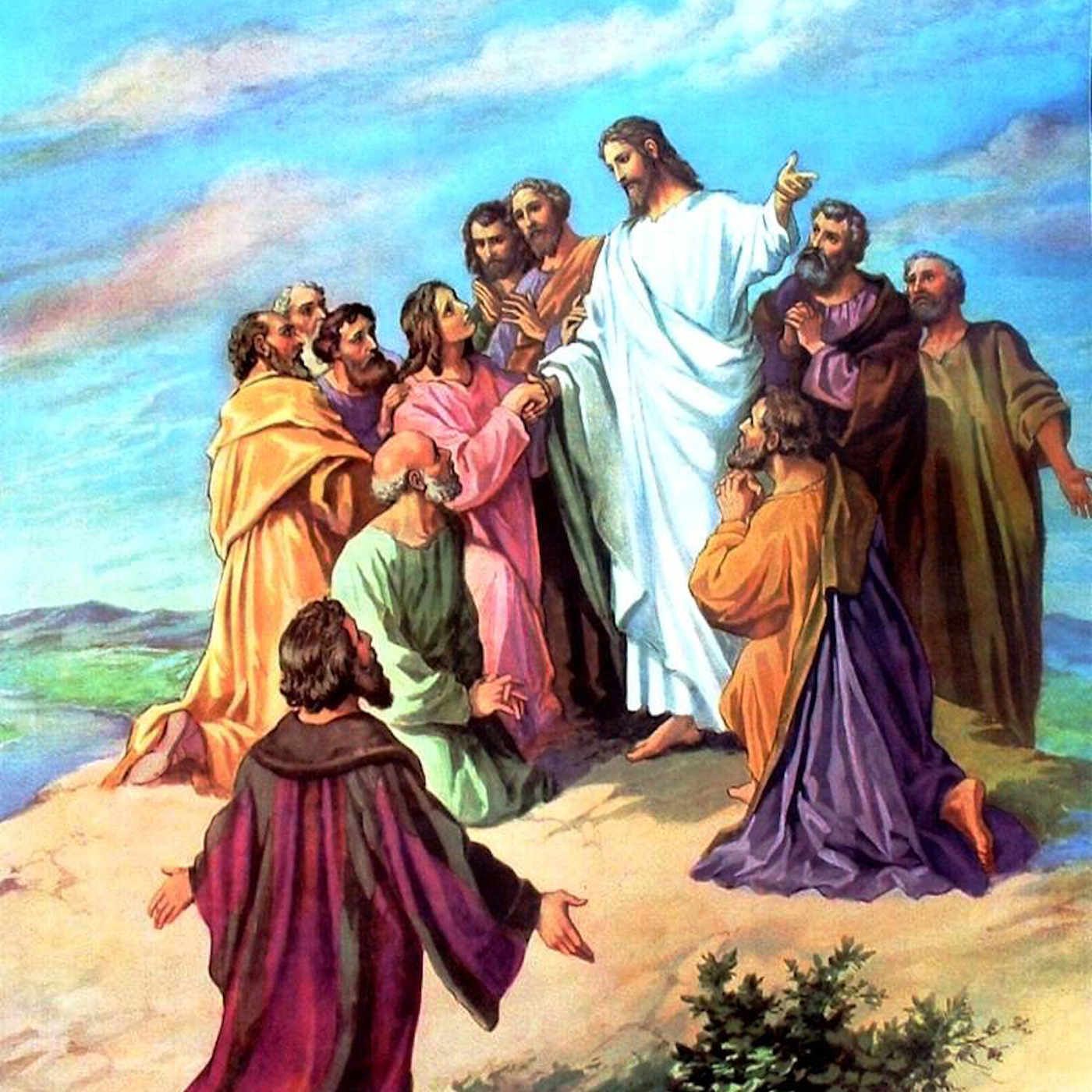
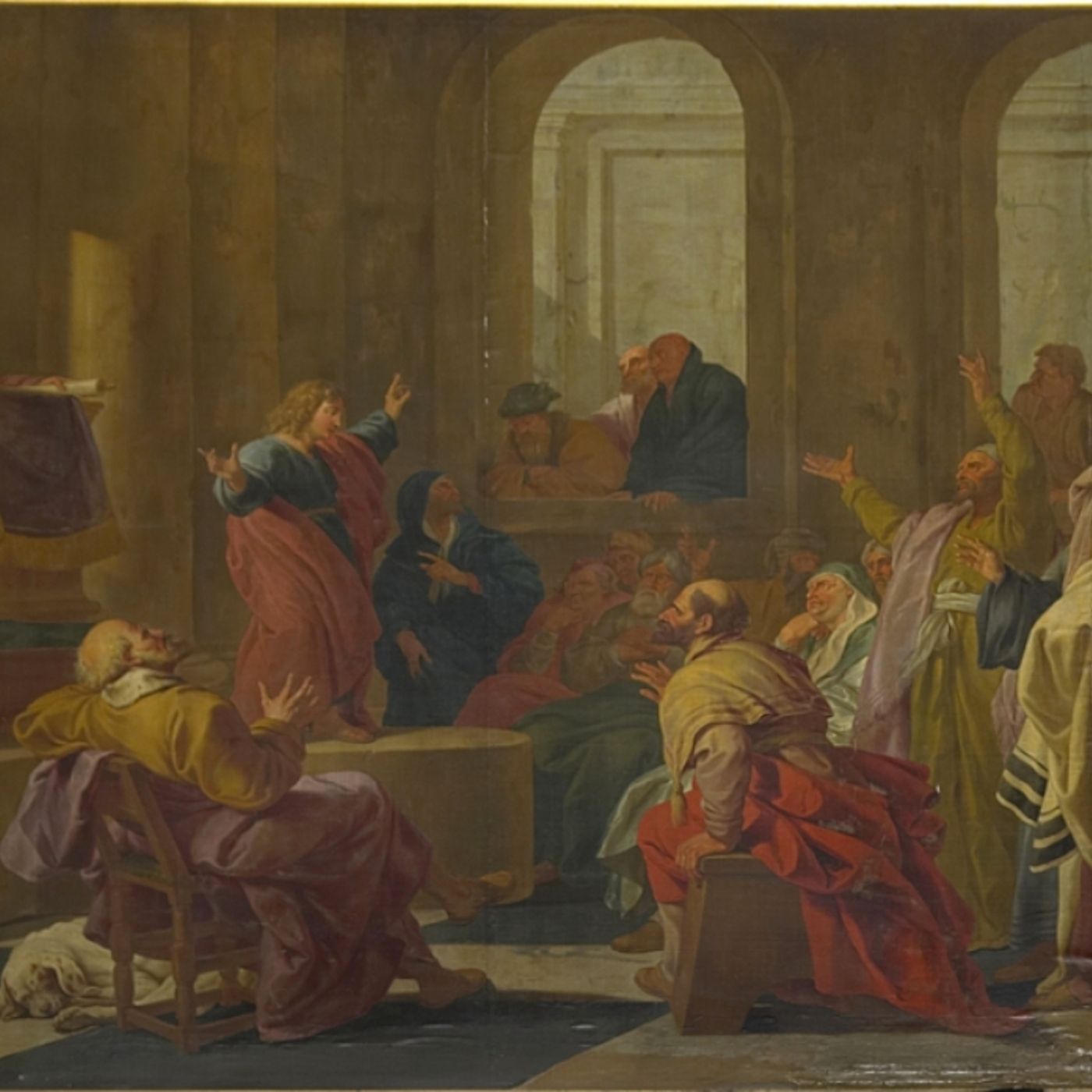
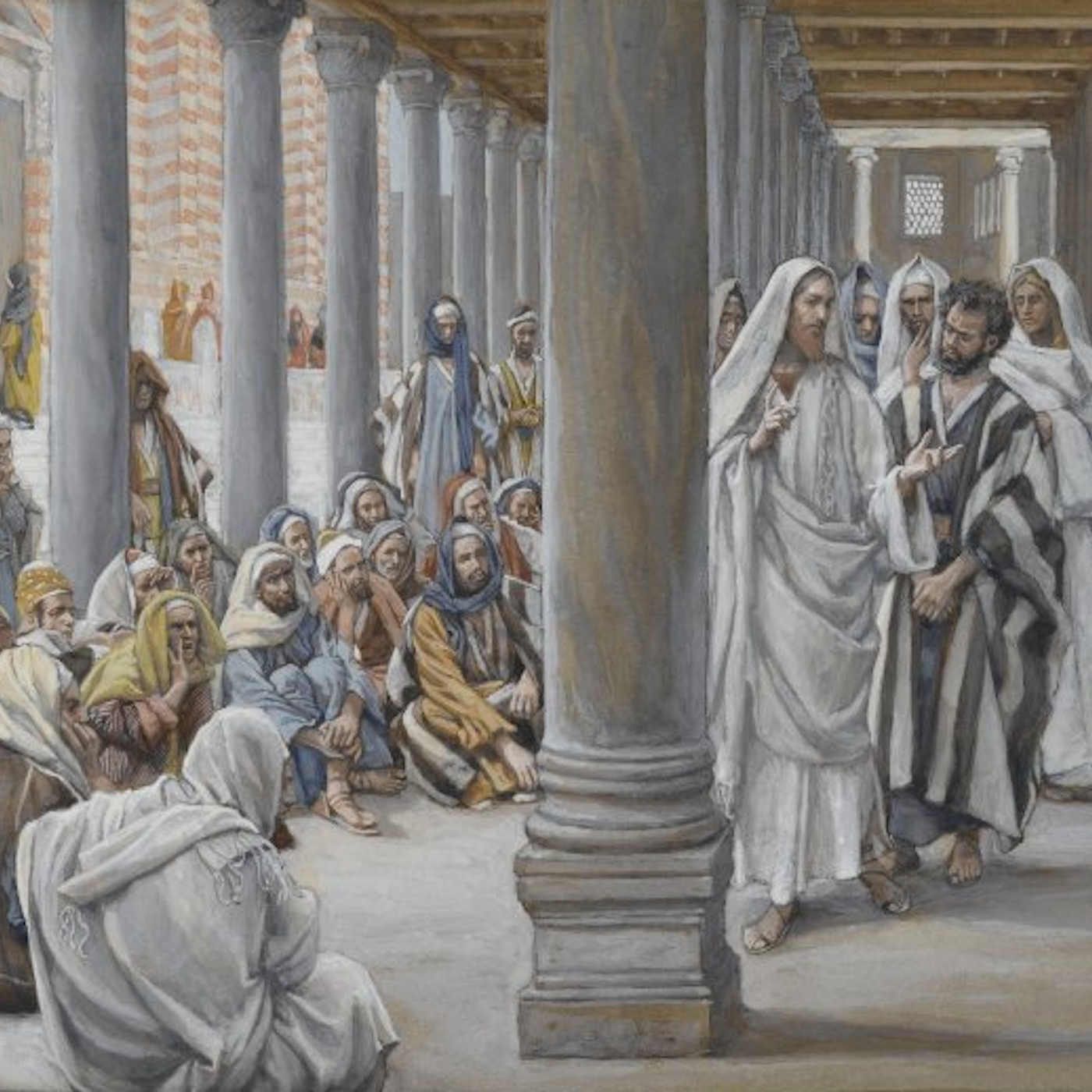

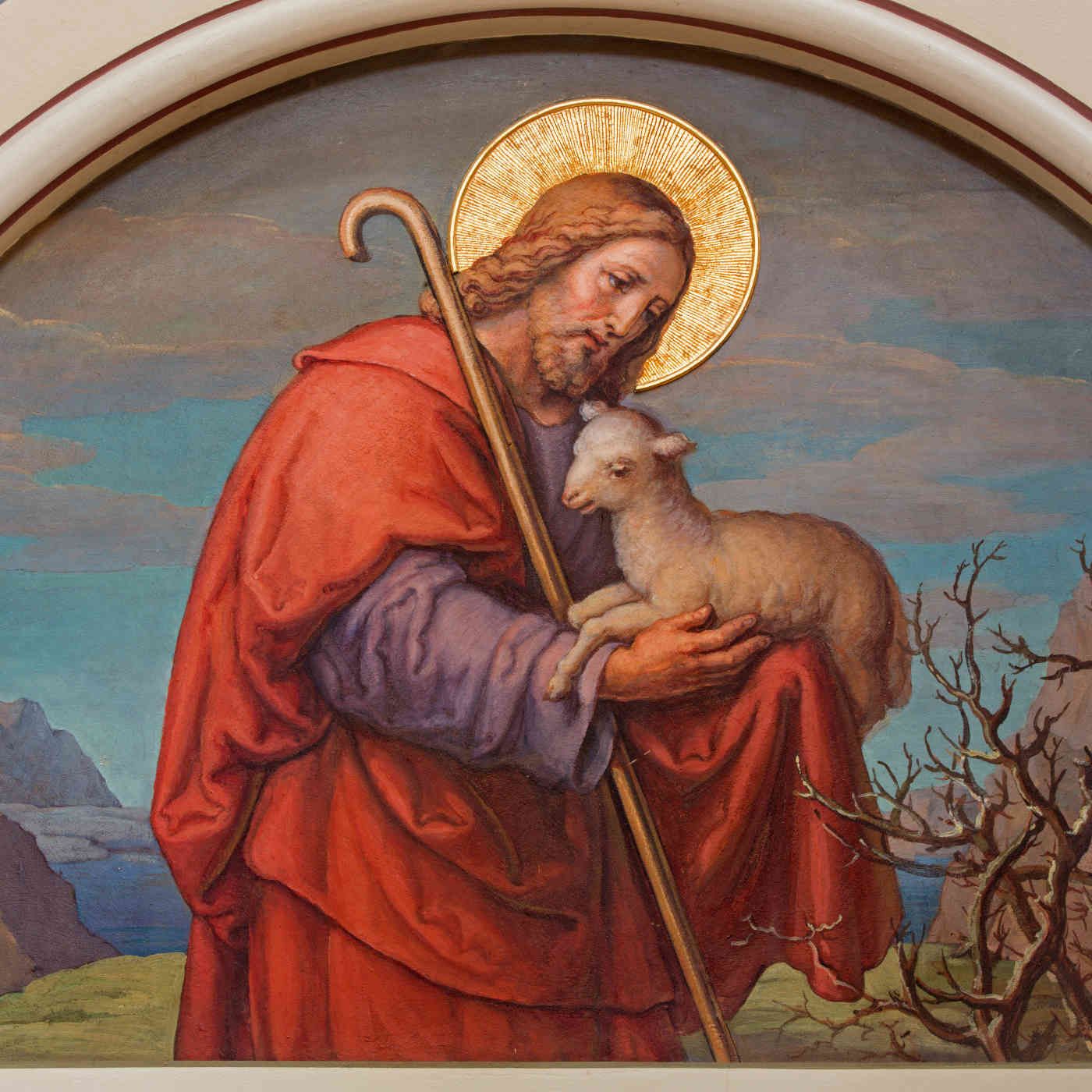
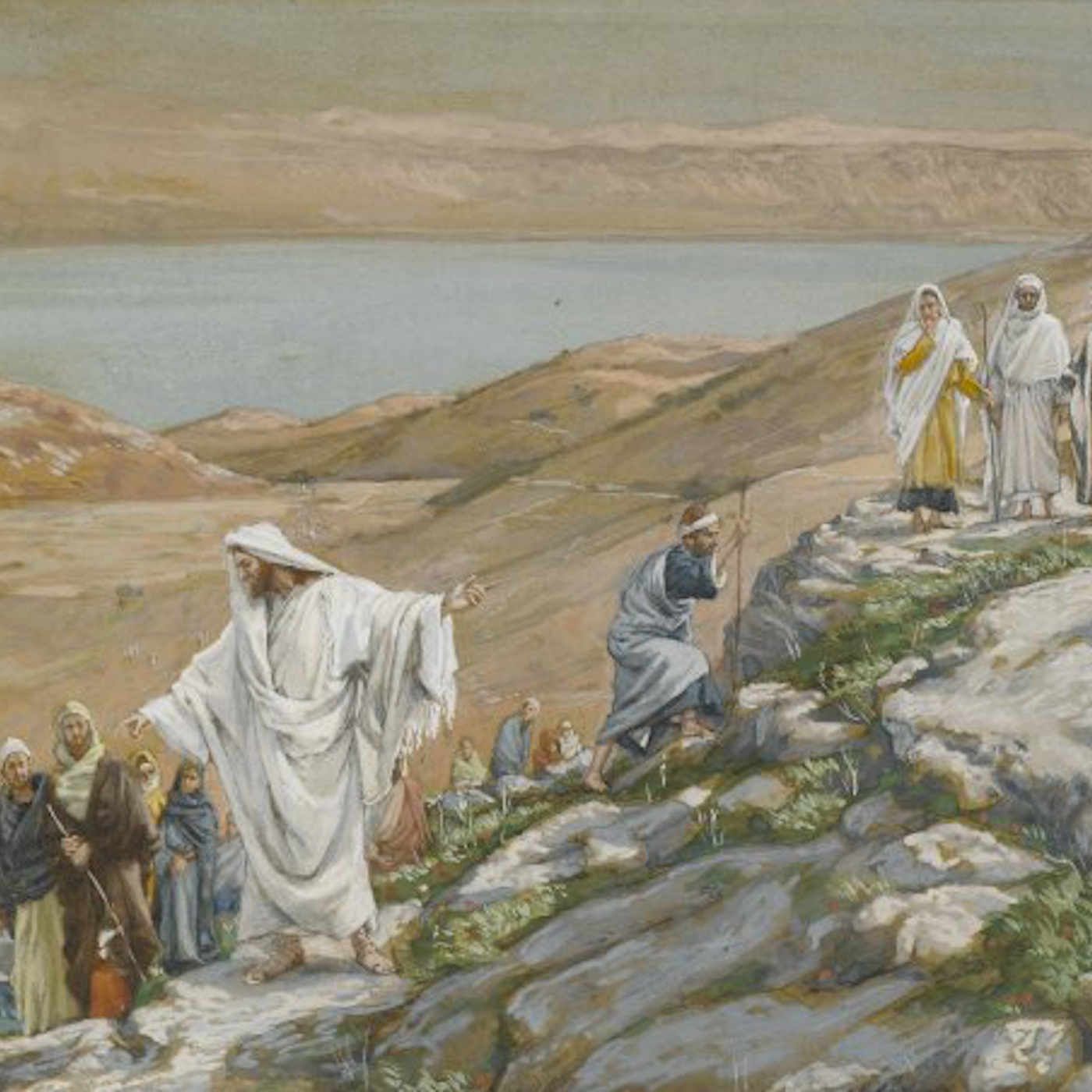
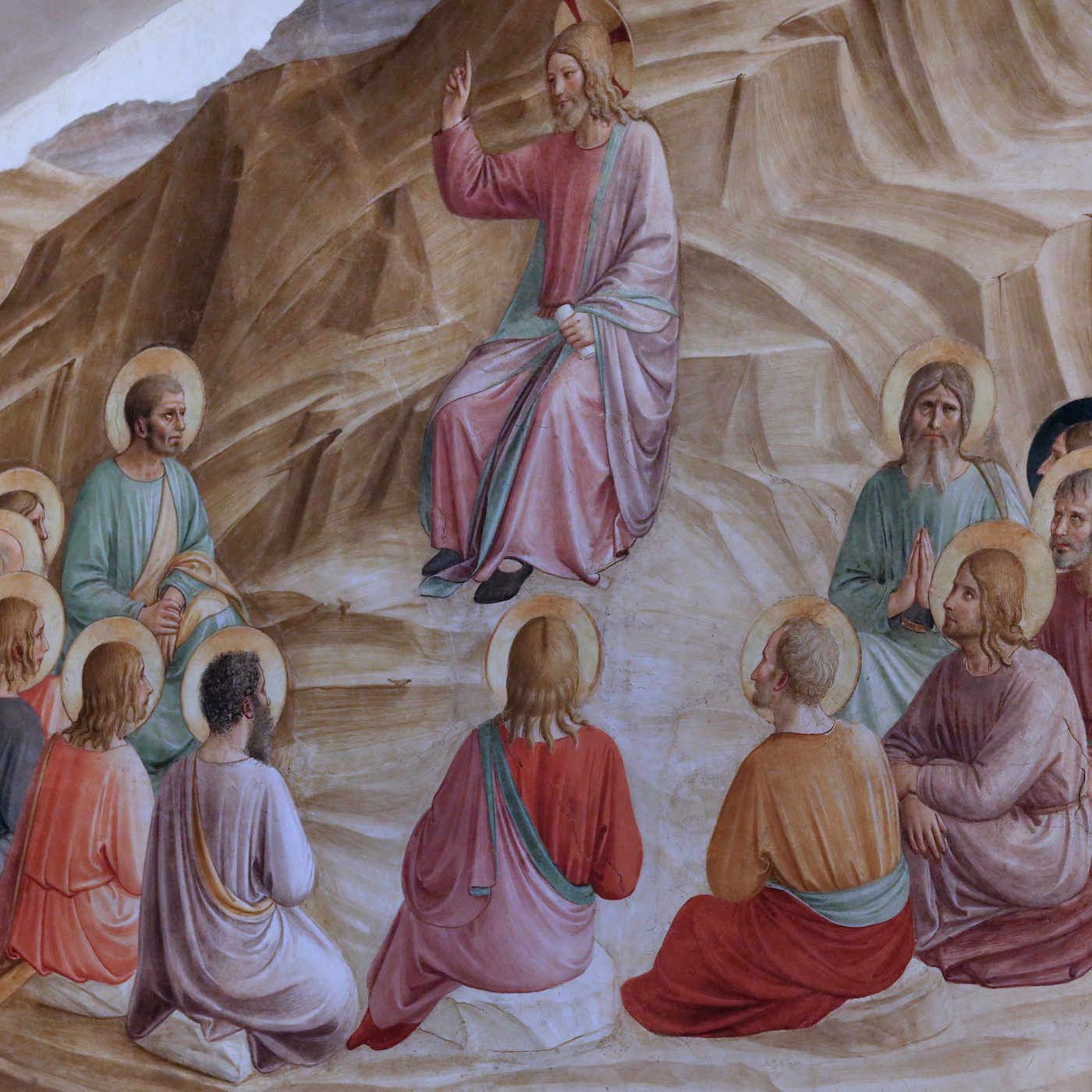
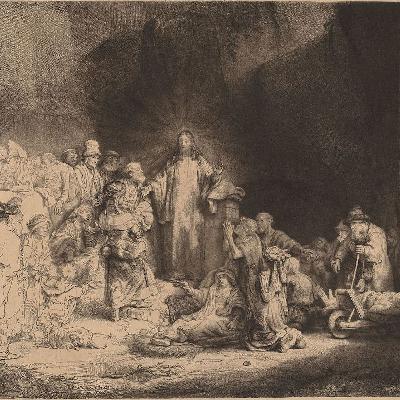
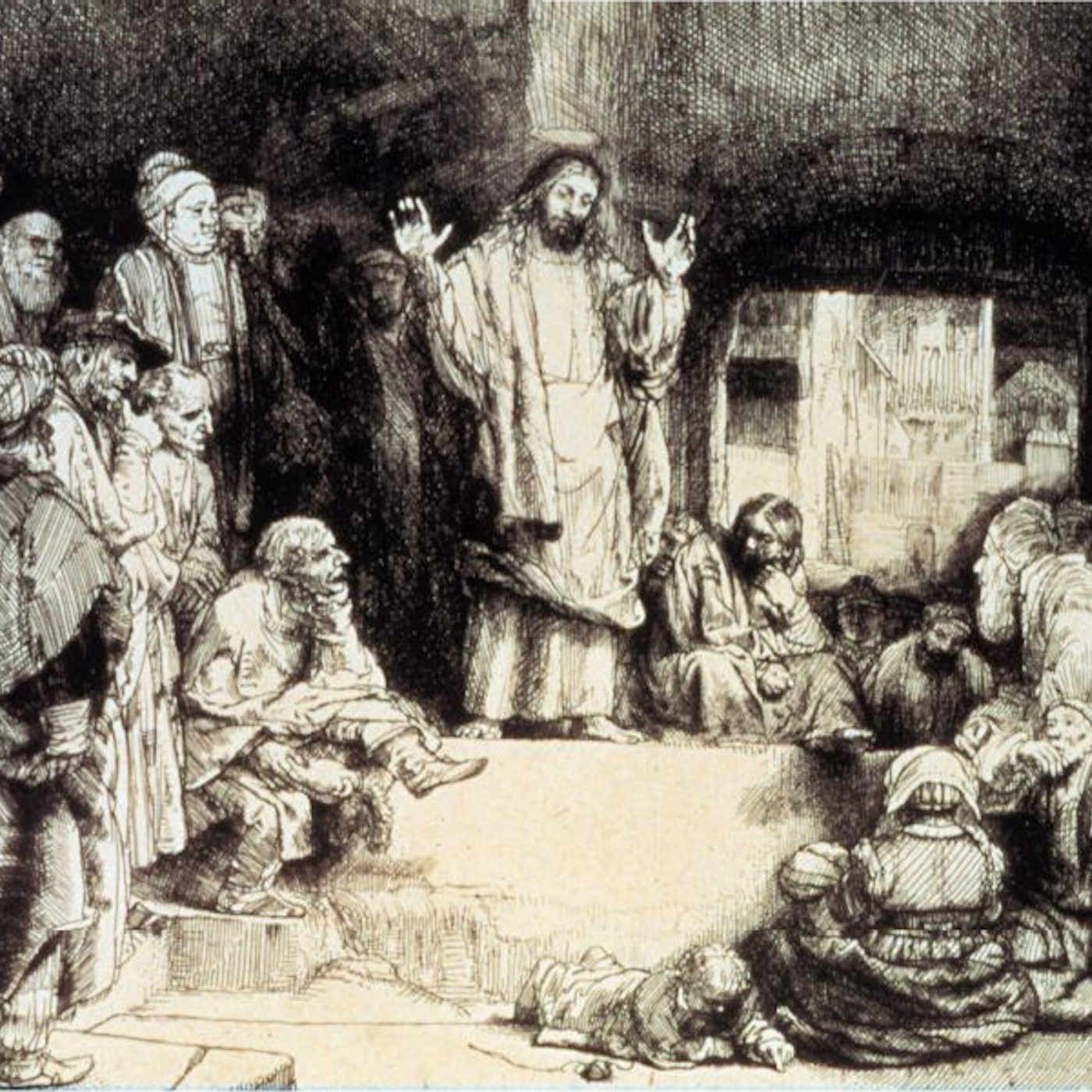
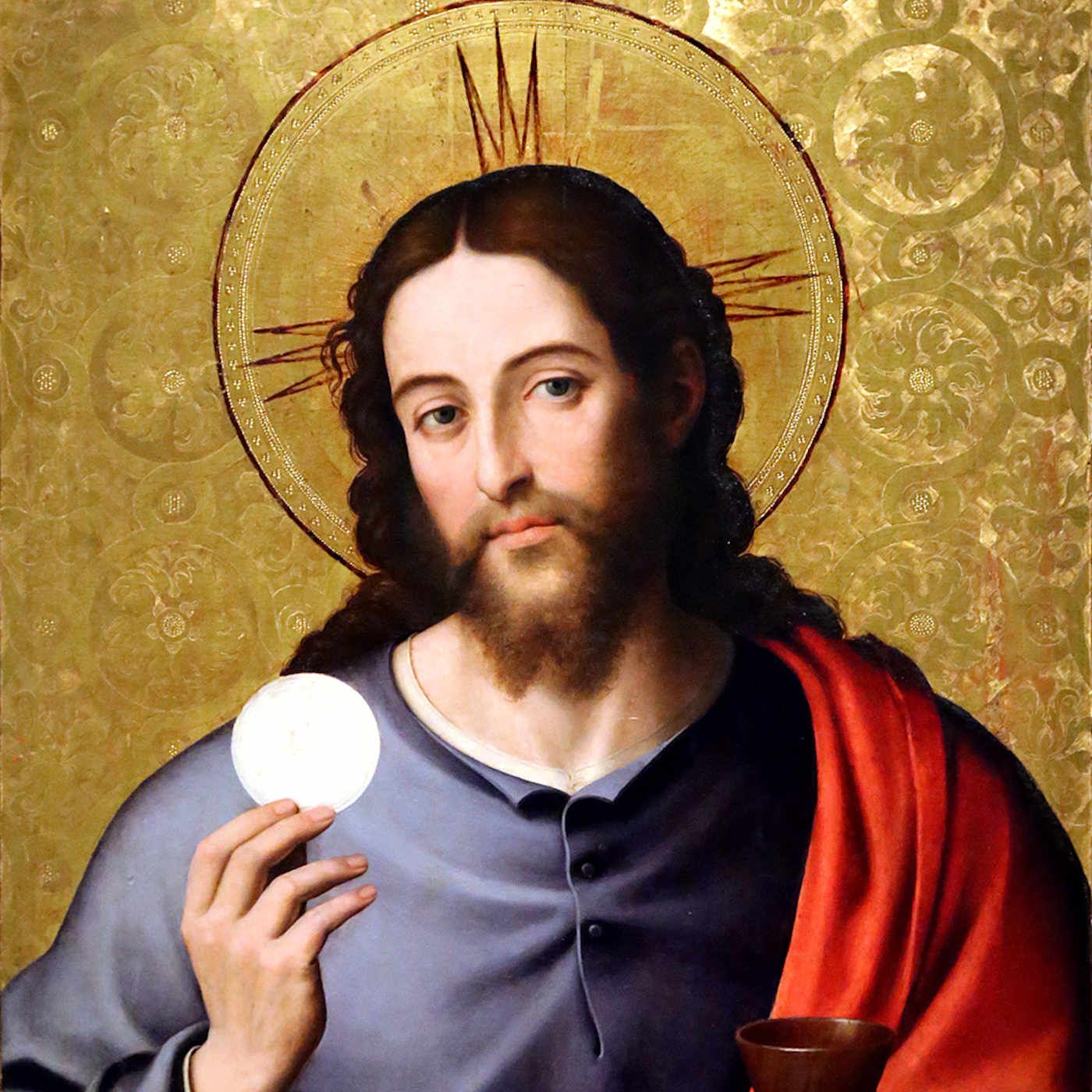

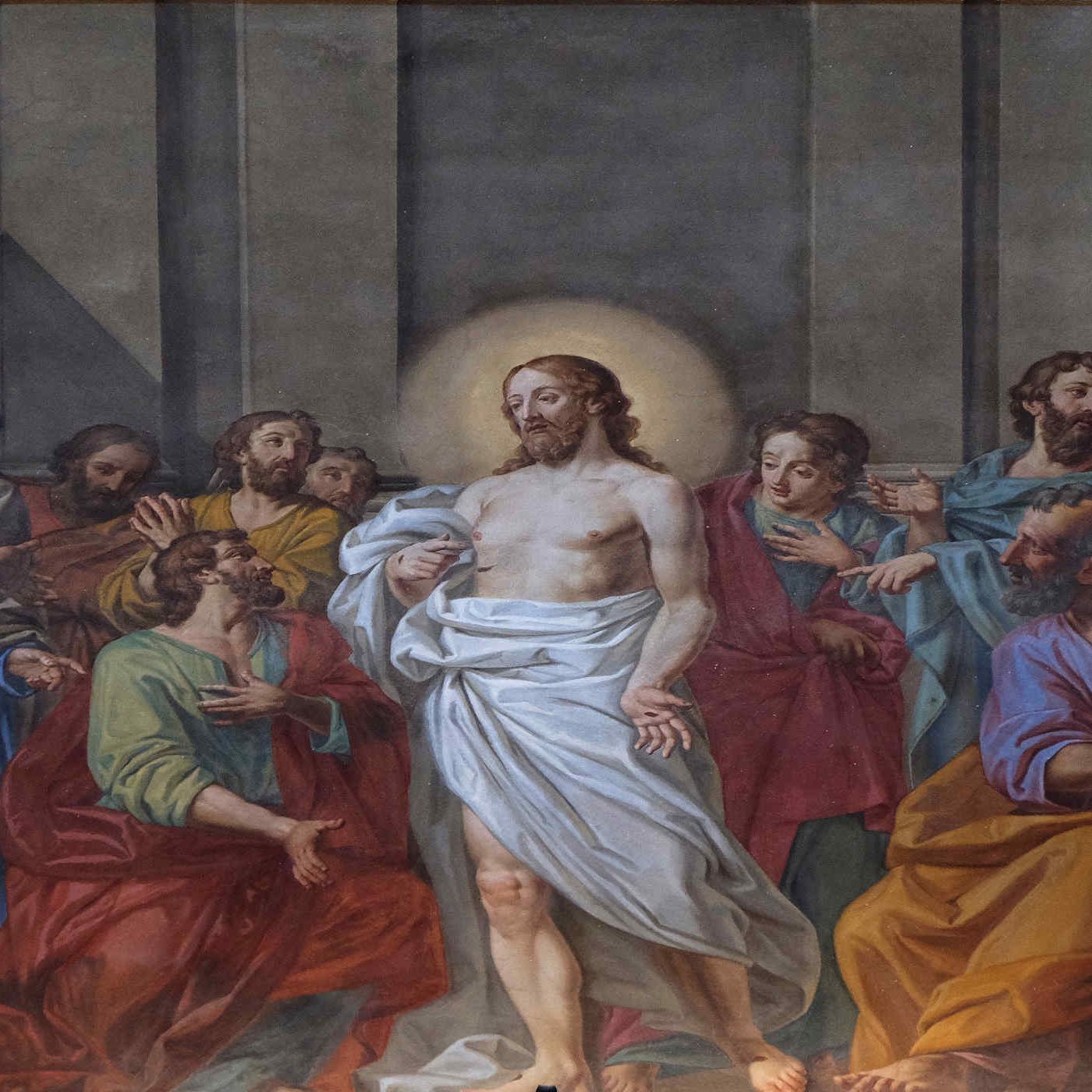
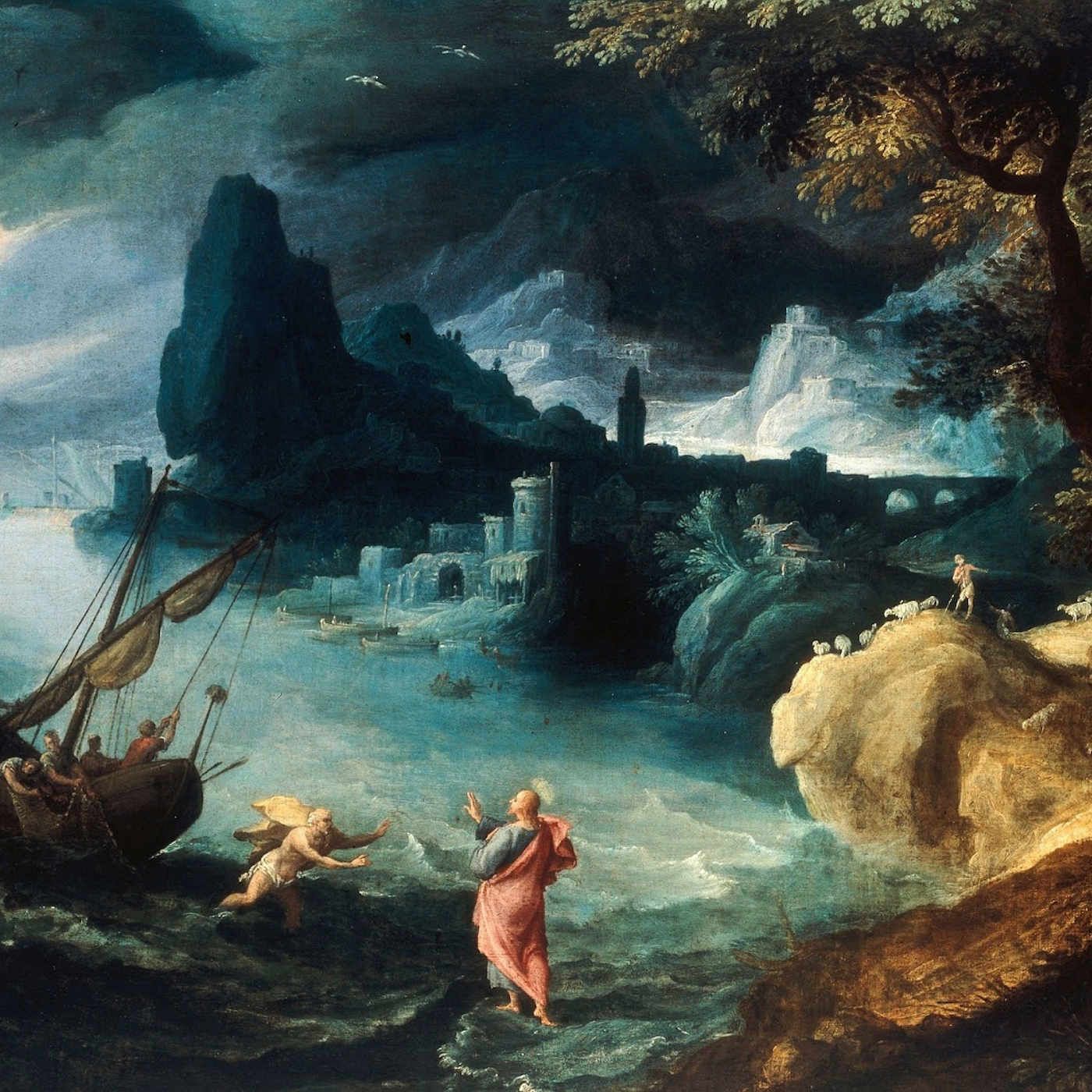
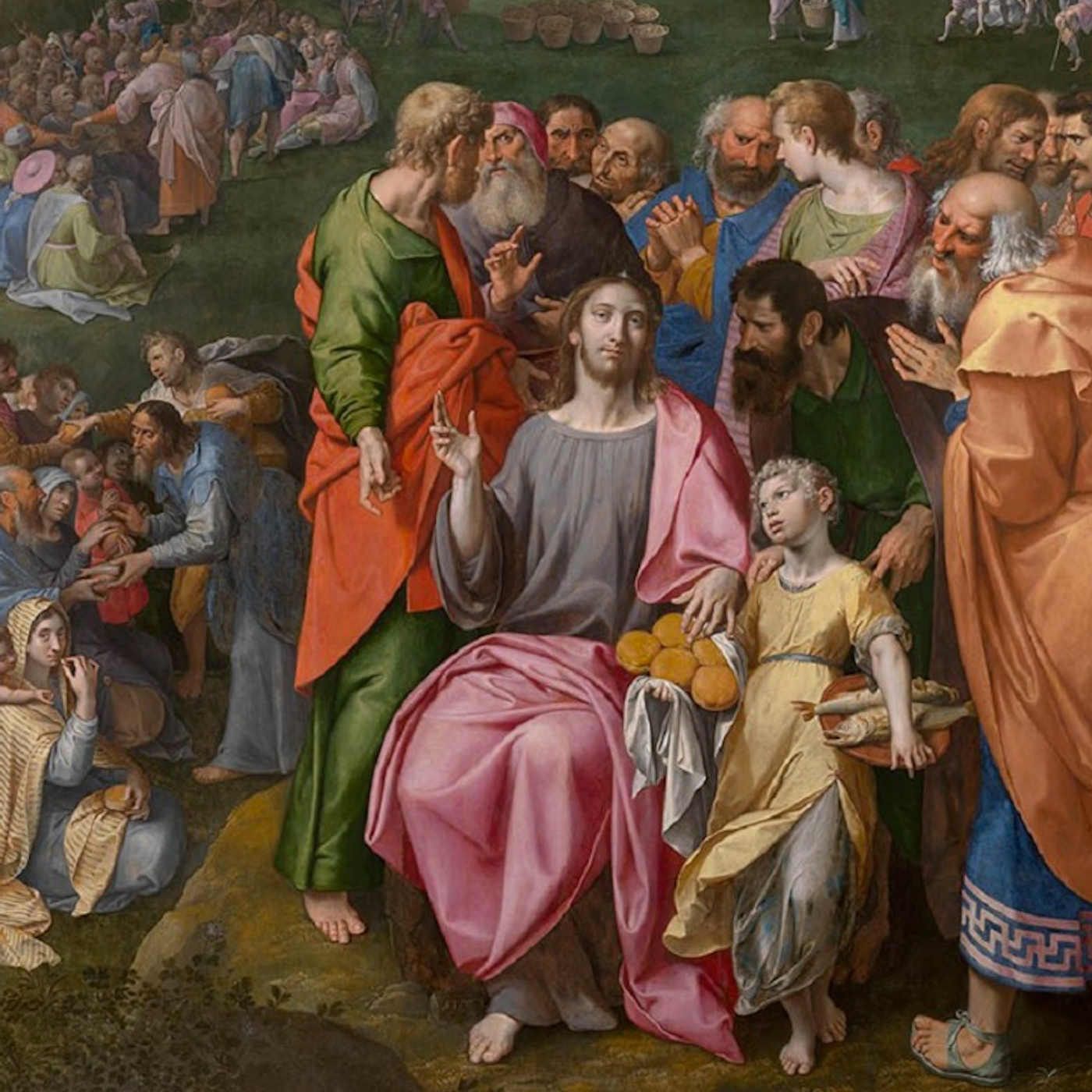
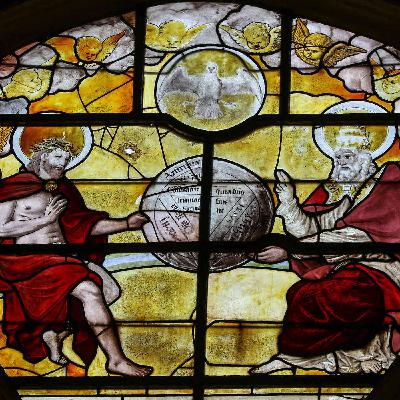
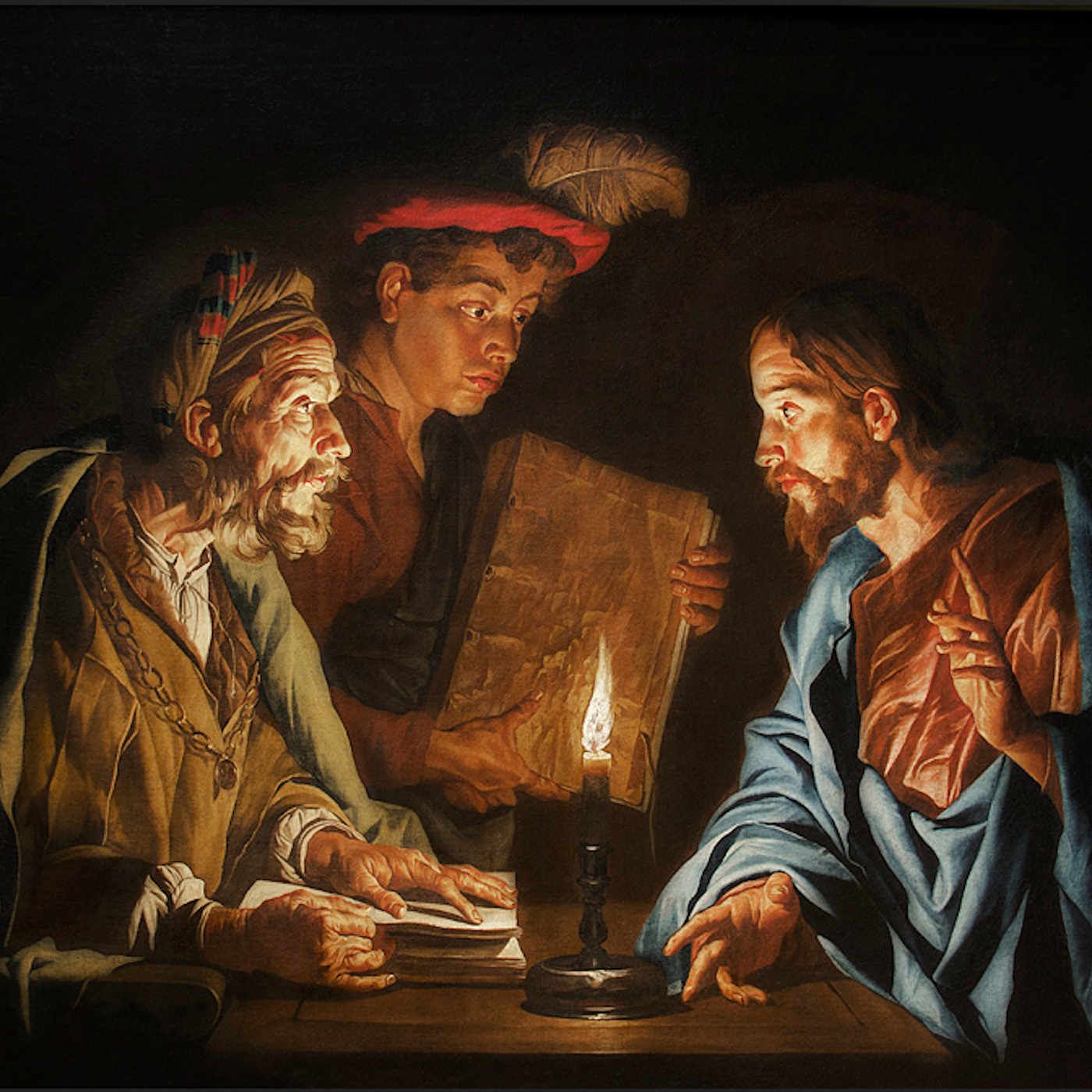
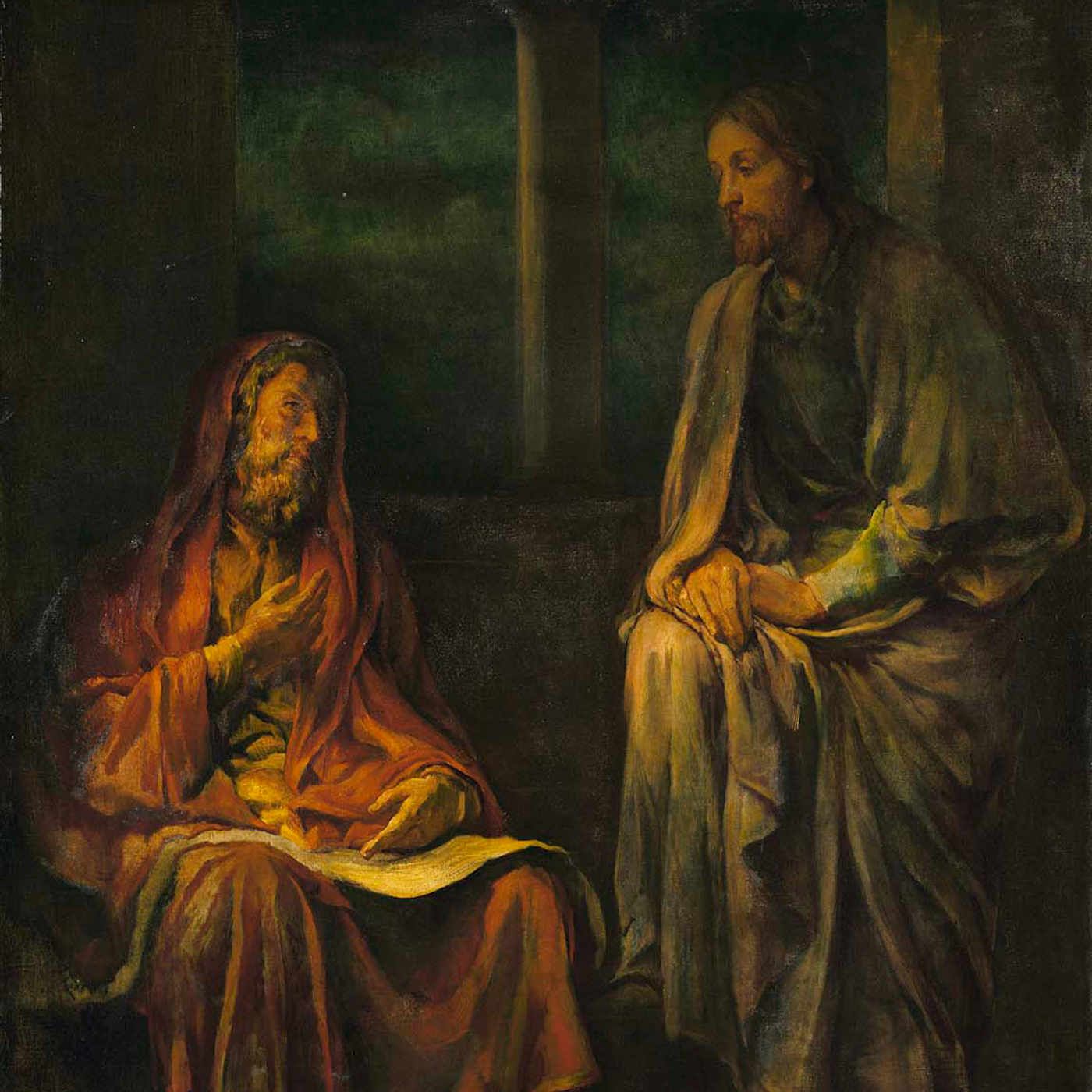
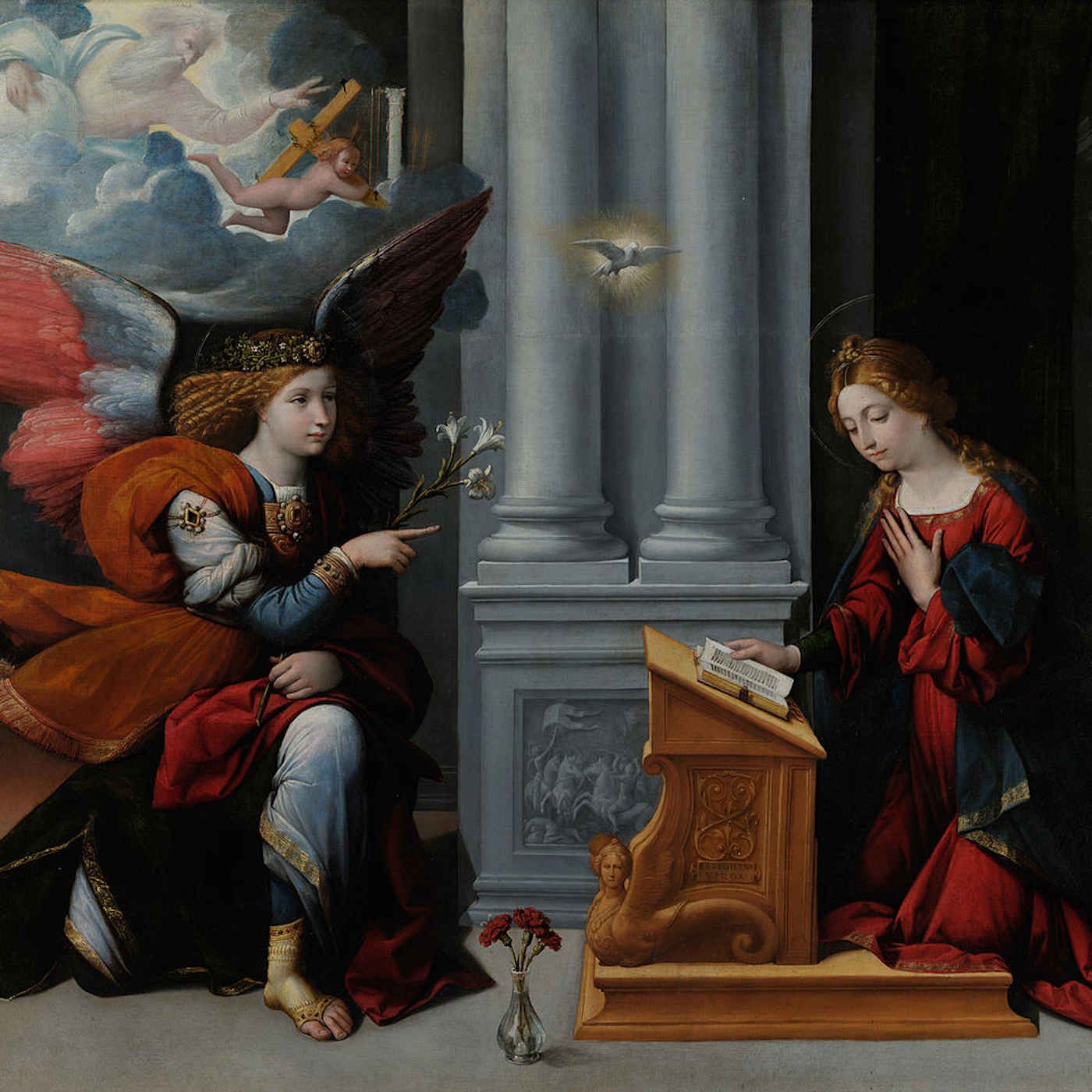

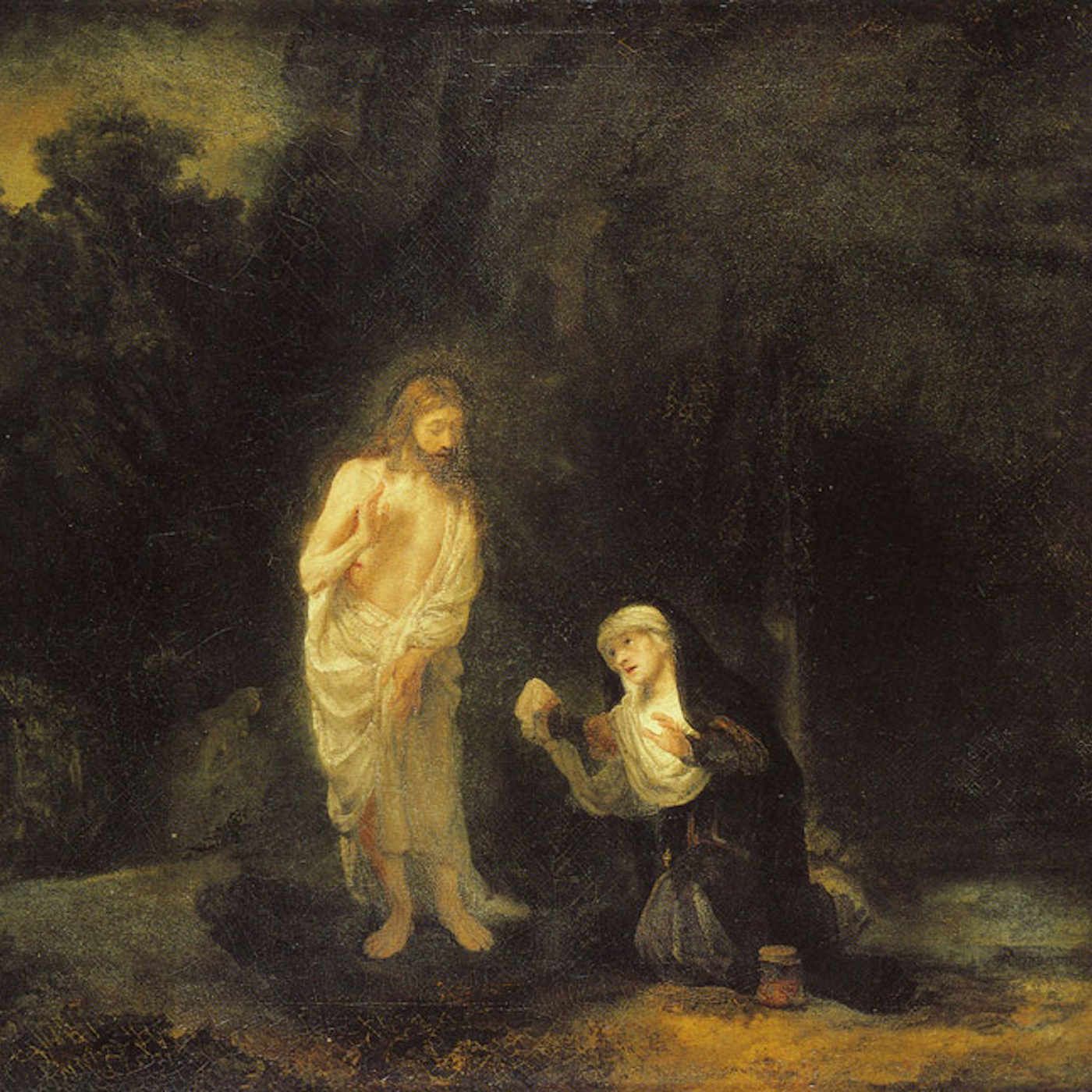



amen 🙏 Thank you for your posting these daily. I appreciate your time and dedication. I learn something new each and every day. God Bless
Amen!
Cleanse me oooh Lord with your Humility.